Add your feed to SetSticker.com! Promote your sites and attract more customers. It costs only 100 EUROS per YEAR.
Pleasant surprises on every page! Discover new articles, displayed randomly throughout the site. Interesting content, always a click away
ARCC
Authentic Summer and GAP Programs for TeensReflection, Accountability & Creativity on a Gap Semester 3 Apr 2025, 12:26 am
It’s hard to put into words the way people change from travel. The small moments where their perspective shifts, where they see outside of their own point of view, or where long-held beliefs are challenged—these provide a window into the initial metamorphosis. But how to summarize the way that small seeds are planted, which can lead to big changes down the line? My co-instructors and I have often commented that we’re only on programs to facilitate the experience—we don’t expect immediate changes in behavior, ideas, or perspectives among students. We don’t ask them to be anyone but themselves—one of the most important things we can do is meet each individual where they are. However, I’d be remiss to say that I haven’t seen changes in students over ten weeks spent traveling, learning, exploring, and overcoming difficulties together on an ARCC Gap Semester.
The changes can be wide-reaching, but three main outcomes stand out to me as a Gap Instructor.
Student Growth: Learning Reflection, Accountability, and Creativity on a Gap Semester
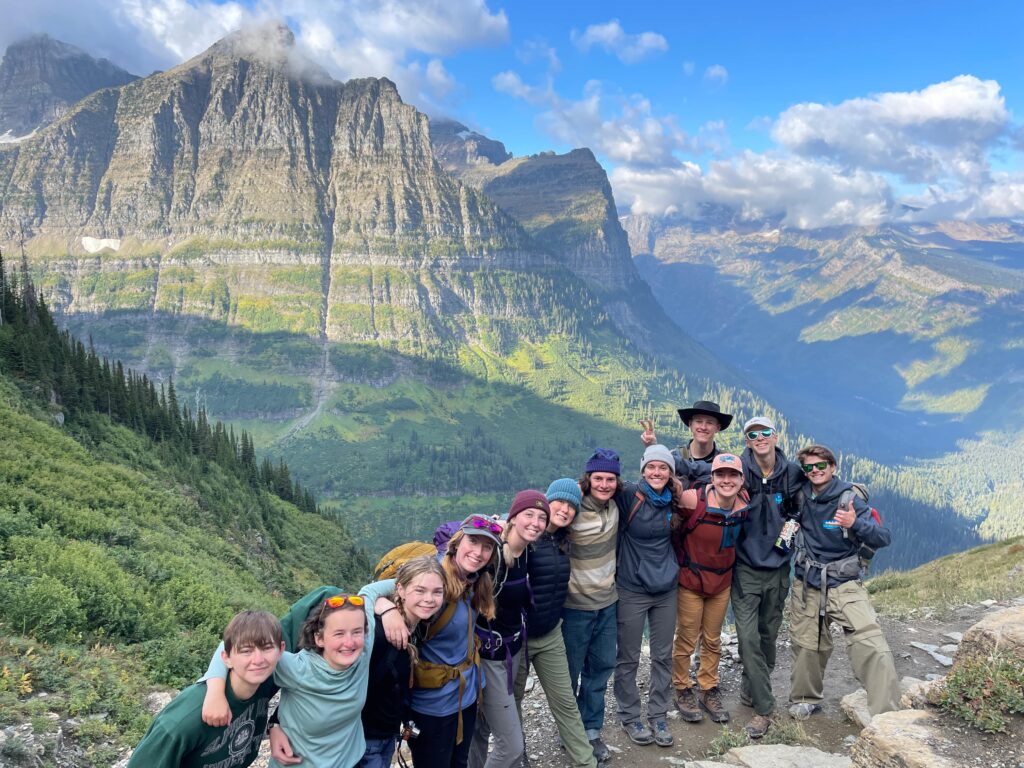
Reflection: Students open their minds to new career paths and ways of living.
Many students embark on a gap semester expecting to clarify what they want to major in in college. Some students even want to find a life passion that will set them on a defined career path. To me, that’s a pretty unrealistic goal to accomplish during 70 days—some very successful people spend their whole lives finding and redefining their ever-evolving passions. While most folks these days find a more circuitous career path, many ARCC students come from high-achieving and academically focused backgrounds and they start with a more narrow mindset.
One student on my Northwest Gap Semester was singularly focused on getting into the field of conservation management. He was well-equipped to ask questions of the experts we met at National Parks on how to break into that field and consistently asked them all what steps they took to get where they are in their field. We noticed a trend as he continued to gather answers—there was no specific recipe! Many of the people working in his desired field emphasized the importance of focusing on what you enjoy, what you’re good at, what skills you want to improve upon—then think about how to combine those into a career. Many gap students will end up working in fields that don’t even exist yet, and as this student learned, it’s important to take time—especially on a gap year—to expand and process all the options you have, as opposed to trying to restrict them immediately.
Some of the best career advice he received was to be adaptable, open-minded, and curious about the fields that he’s drawn to, which would surely lead to more hands-on work experiences and a career that was intentional, yet organic.
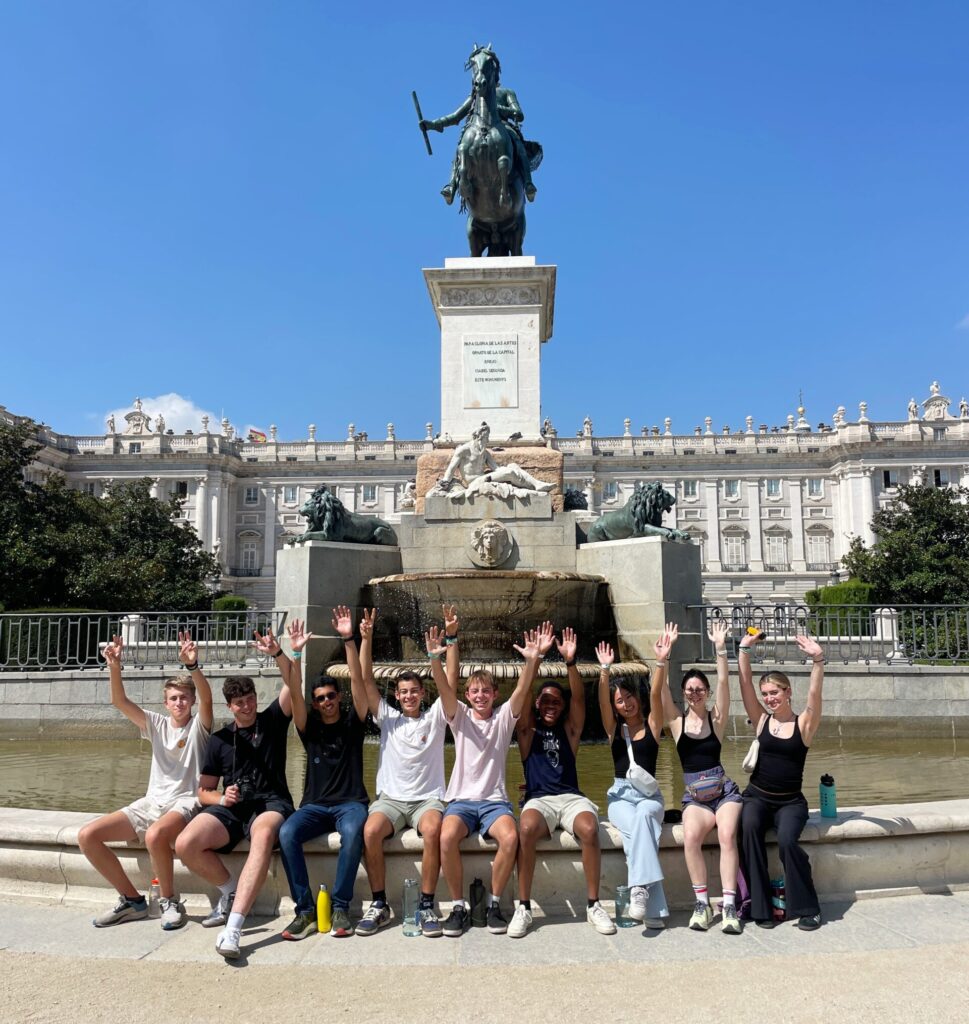
Accountability: Students recognize the impact of their actions and gain communication skills.
For many gap students, traveling, working, eating, and recreating with their group for ten weeks is by far the most time they’ve spent with anyone, let alone up to thirteen other people! The close quarters, both physical and emotional, can easily lead to ruffled feathers and frustrations. On my most recent Gap Semester in Spain, Morocco, and Portugal, our students did the math and calculated that they’d spent more total time together over the course of the program than they had ever spent with their closest friends!
With this group, we had to work through annoyances about the way we approached controversial topics. Some people loved talking about politics and religion at the dinner table, and others would have rather focused on lighter and less stressful subjects. It’s easy to lose sight of the impact you can have on others with your words and attitudes, but it becomes abundantly clear when you’re sharing space and spending time together 24/7. Students on this program learn to “own their impact” and start to see from experience the way they influence their group mates, for better or for worse. That’s not an argument for “toxic positivity,” or the denial of any negative feelings, but rather a vote for learning how to communicate their needs clearly, kindly, and consistently. Over time, we observed the students who were uncomfortable with political chat setting their boundaries in healthy ways, practicing putting themselves in others’ shoes and exercising patience. While the students who wanted to have those conversations learned to do so in other settings and not to involuntarily involve those who did not want to participate. This is a challenging thing to do, especially when it’s an underdeveloped ability, but a gap semester is a supportive environment to practice this essential skill for strong relationships moving forward.
Taking accountability for one’s own part in any difficult situation is a key way to work towards a solution.
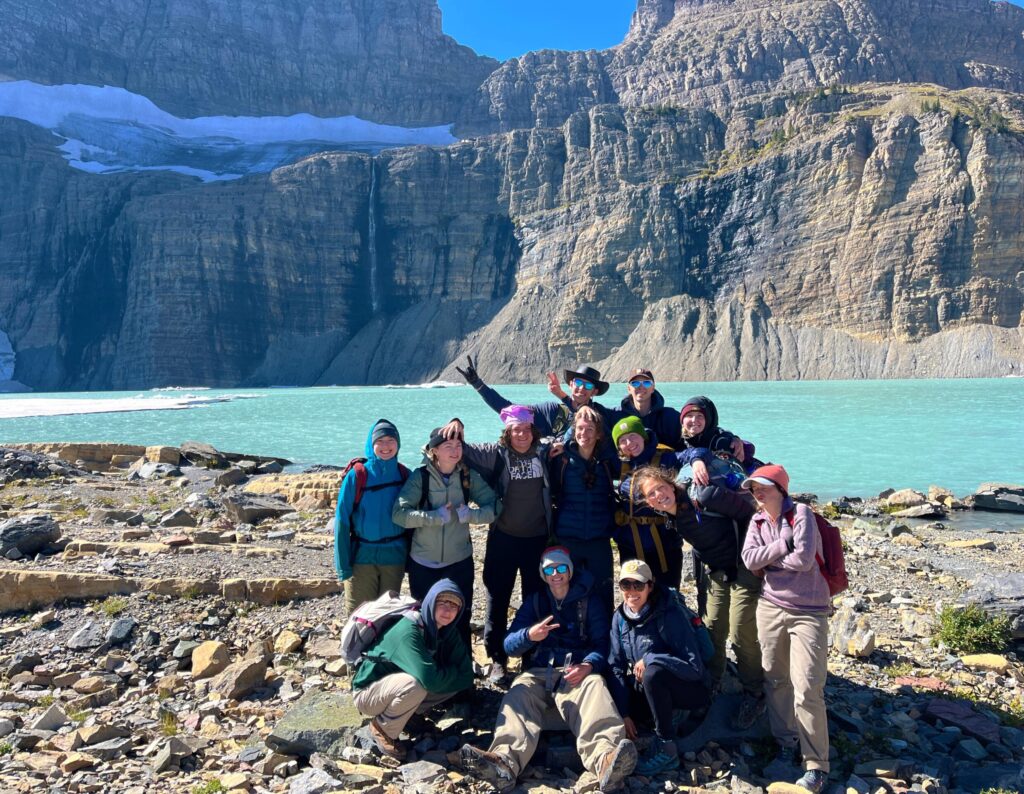
Creativity: Students collaborate and improve their problem-solving abilities.
When students come on an ARCC Gap Semester, they know they’re signing up for a challenging, educational experience that is far from an all-inclusive vacation. They’re not only living and working alongside the same people for months, they are constantly put in new environments, navigating different places and cultures, and participating in service learning activities. This requires a high level of flexibility, and ultimately creativity, to be able to meet these challenges and make this unique lifestyle work for them.
One of the most significant assignments students are tasked with towards the end of the semester is the Student Planned Module Challenge (SPMC). This is a five-day portion of the program when the students plan the accommodations, food, transportation, and activities for the whole group. On the Northwest Gap Semester, this was something everyone was enthusiastic about, and at first, ideas abounded. However, the laid-back attitude of the group led to a bit of a vacuum in leadership, and the idea that someone else would pick up the slack pervaded. By day three, we found ourselves in pouring rain at a campsite where there wasn’t much to do and no one was having a good time. Given that we instructors are not meant to help during the SPMC, except for emergency situations, we simply pointed out our observations to the group about the lack of decisive leadership and gave them the chance to turn it around. They gathered to assess their options, reviewed their budget, and held a vote for their next steps. Before we knew it, we were on our way to a new town that we were excited to visit and stayed in nice, indoor accommodations where we could finally take a shower and dry out our belongings!
It was easy to fall into the trap of “it will all just get figured out”—that’s what we instructors were there to do for them the rest of the program! In traditional education, we’re not often given such an open-ended task like the SPMC, so my co-instructor understood that it was a considerable challenge. When the students were asked to step up to the plate, they didn’t anticipate how complex the challenges would be—the wet weather, lack of facilities, and desire to do something different than what was planned were a surprise. Everyone agreed that it was a good lesson learned—they could have benefitted from a more detailed plan, managing responsibilities more specifically, and self-advocating more clearly for what they wanted to do.
But at the end of the SPMC, they came together as a group to find a creative solution to their challenge and we ended up having a blast—minus that one rainy night.
The post Reflection, Accountability & Creativity on a Gap Semester appeared first on ARCC.
ARCC Alum Family Talk Student & Parent Perspectives on Gapping 28 Jan 2025, 7:49 pm
"I definitely would have been fine if I went straight to college, but this experience developed me and helped me thrive in college in ways that I never expected before I took my gap year."
Gap Year Radio host Julia Rogers chats with Abby, an ARCC Gap alum and current aerospace engineering student, and her mom, Elena, about Abby’s incredible year of exploration and growth.
From volunteering at an elephant sanctuary in Thailand, to navigating East Africa’s rugged terrain, to road-tripping through 10 National Parks, Abby’s experiences shaped her confidence, independence, and readiness for college and beyond.
Elena shares her perspective as a supportive parent, offering tips on researching programs, addressing common concerns, and empowering independence. Together, they discuss scaffolding gap year experiences, overcoming challenges, and why a gap year is valuable for all students, including high-achievers who know what’s next.
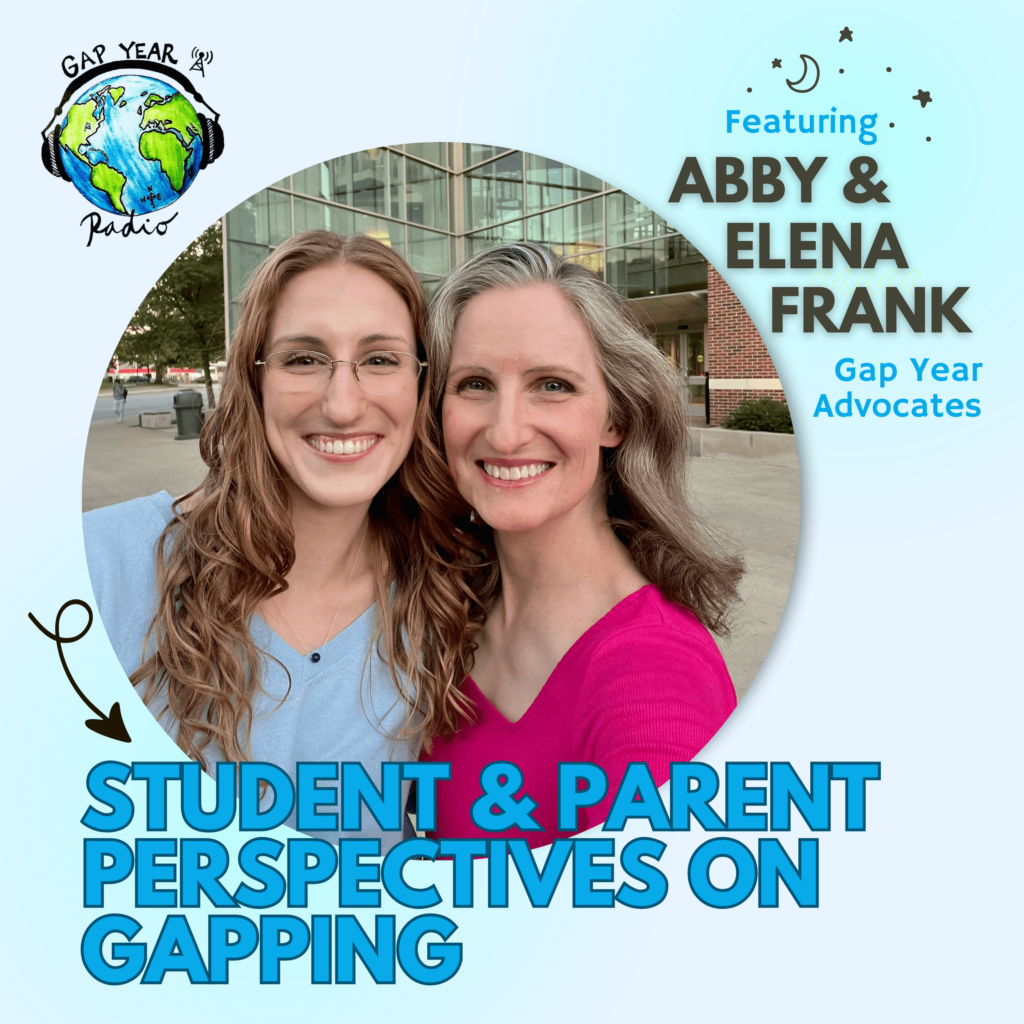
Listen to the Podcast Episode to Learn:
 How Abby’s gap year journey unfolded across Thailand, East Africa, and the U.S.
How Abby’s gap year journey unfolded across Thailand, East Africa, and the U.S.
 Why structured programs like ARCC Gap helped build her confidence for independent travel.
Why structured programs like ARCC Gap helped build her confidence for independent travel.
 Elena’s advice for parents: how to research gap year programs and support independence.
Elena’s advice for parents: how to research gap year programs and support independence.
 How Abby’s gap year shaped her mindset for college and prepared her for a career in aerospace engineering.
How Abby’s gap year shaped her mindset for college and prepared her for a career in aerospace engineering.
 The value of “being bad” at something–and how it fosters resilience and growth.
The value of “being bad” at something–and how it fosters resilience and growth.
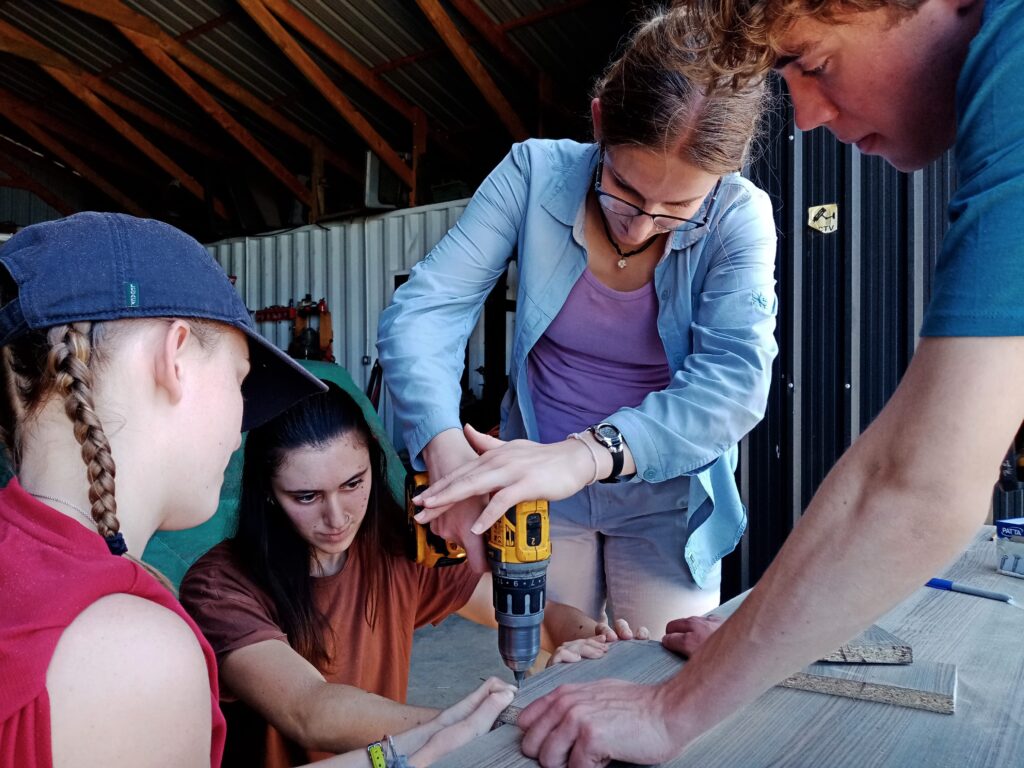
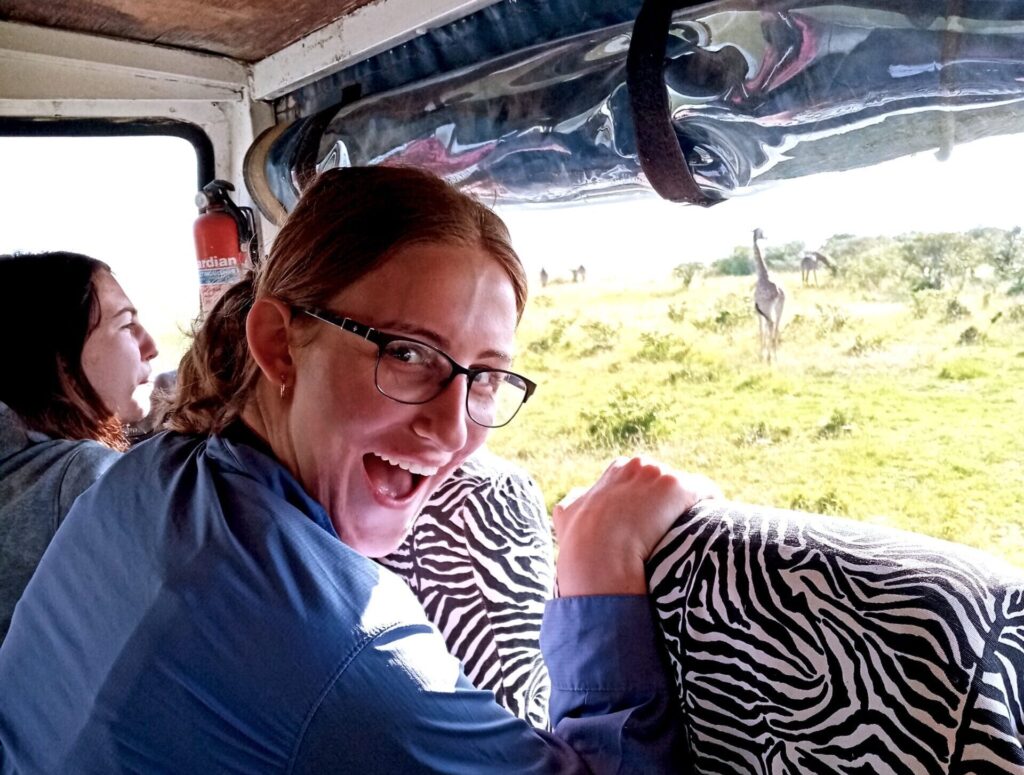
Explore all our ARCC Gap Semester Programs
 Listen to more Gap Year Radio episodes at gapyearradiopodcast.com
Listen to more Gap Year Radio episodes at gapyearradiopodcast.com
@gapyearradio @enroutegapyear
*Intro/Outro Music: Quasi Motion by Kevin MacLeod; licensed under a Creative Commons Attribution License
The post ARCC Alum Family Talk Student & Parent Perspectives on Gapping appeared first on ARCC.
Brad Gillings Joins ARCC 26 Sep 2024, 9:16 pm
Brad Gillings joins ARCC bringing decades of industry experience and innovation.
We are very happy to announce that Brad Gillings has joined the ARCC team!
Brad is a pioneer in international experiential education and has spent much of his time over the past thirty five years in Asia, Africa, and South America. In the mid 1990’s Brad created Youth International, one of the United State’s first international gap year programs and led its first team on a ten month around-the-world learning adventure through eleven countries in Asia and Africa in 1997. After leading the second Youth International team through Asia for five months during the winter and spring of 1998, he took a step back from continuous life on the road and went on to build one of the most successful and long running programs in the gap year industry.
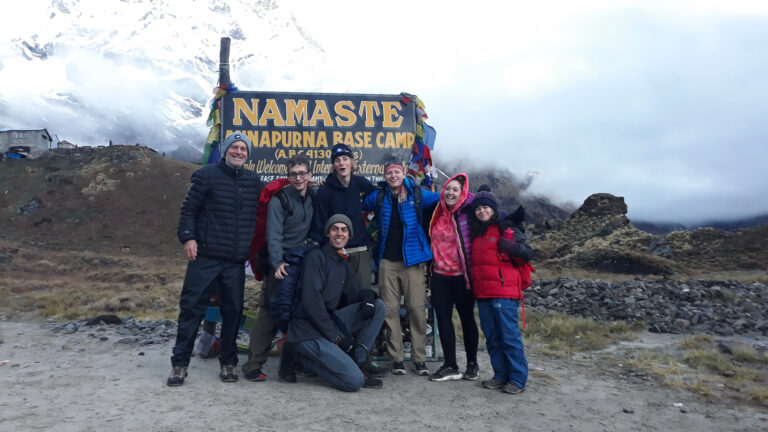
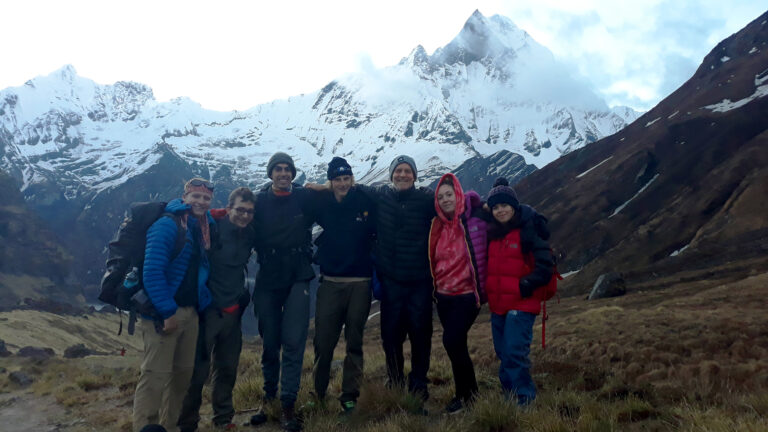
Brad recently received the American Gap Year Association’s Lifetime Achievement Award in recognition of his long-term contributions and impact to the field of experiential education, and for running Youth International’s “consistently excellent” programs in 17 different countries for over a quarter century.
"I couldn't be more excited to join the ARCC team! Over the years I have come to know ARCC through collegial friendships with staff members and having heard many great first hand stories about ARCC Programs from trip leaders and students who have worked and traveled with both ARCC and Youth International. ARCC has earned my highest respect with its reputation of consistently running high quality programs. With the changing post-COVID landscape of international experiential education, George Hoch is interested in not only continuing to run the same top notch trips they have for years, but is also looking to add some exciting new innovative programs to their repertoire as ARCC progresses into an ever changing future. I am thrilled to harness my years of experience and pour my heart and soul into helping ARCC build toward that bright and exciting future!"
–Brad Gillings, Director of Strategic Planning
We are thrilled that Brad will now join the team and propel us forward into the future as an innovative leader in experiential travel education.
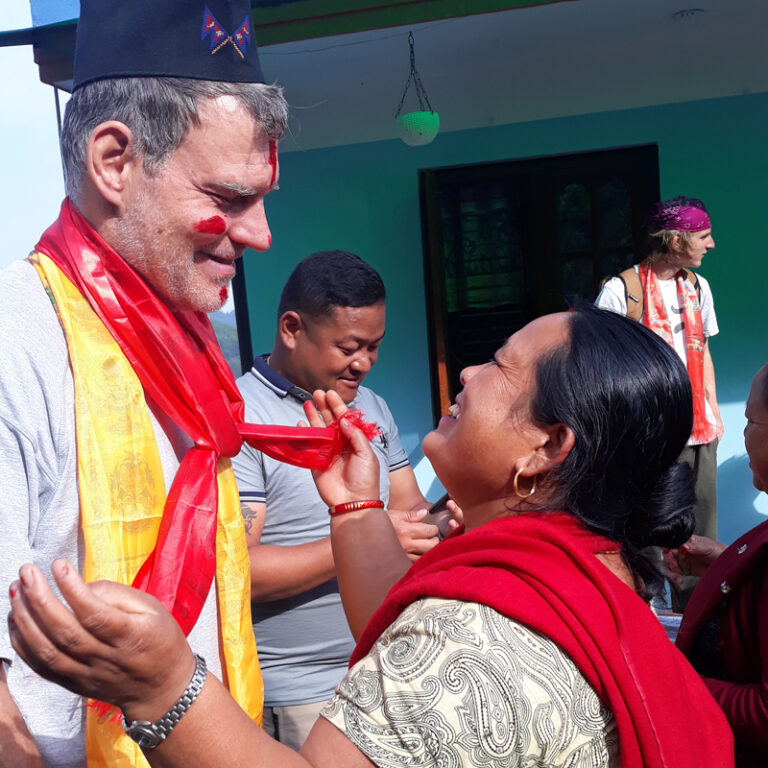
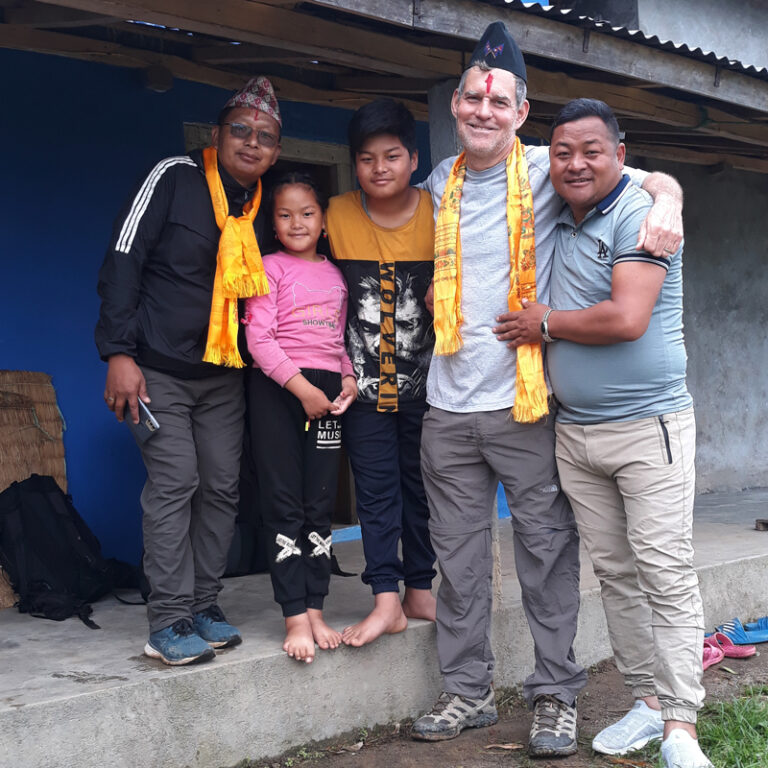
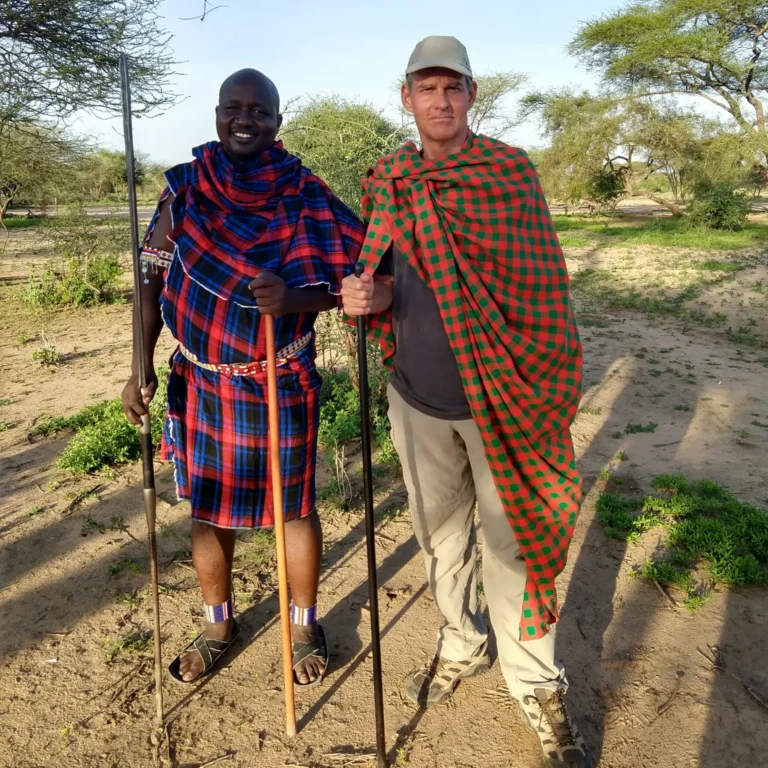
The post Brad Gillings Joins ARCC appeared first on ARCC.
Leader Photo Contest: Summer 2024 16 Sep 2024, 8:55 pm
We held a photo contest this past summer to see which of our Trip Leaders could capture the best program moments. And the results are in, so cue the drumroll! 

Best Adventure Moment

Captured by: Sarah Loring 
2nd year ARCC Leader
From our Alaska: Leadership in the Last Frontier program
Best Candid Connection
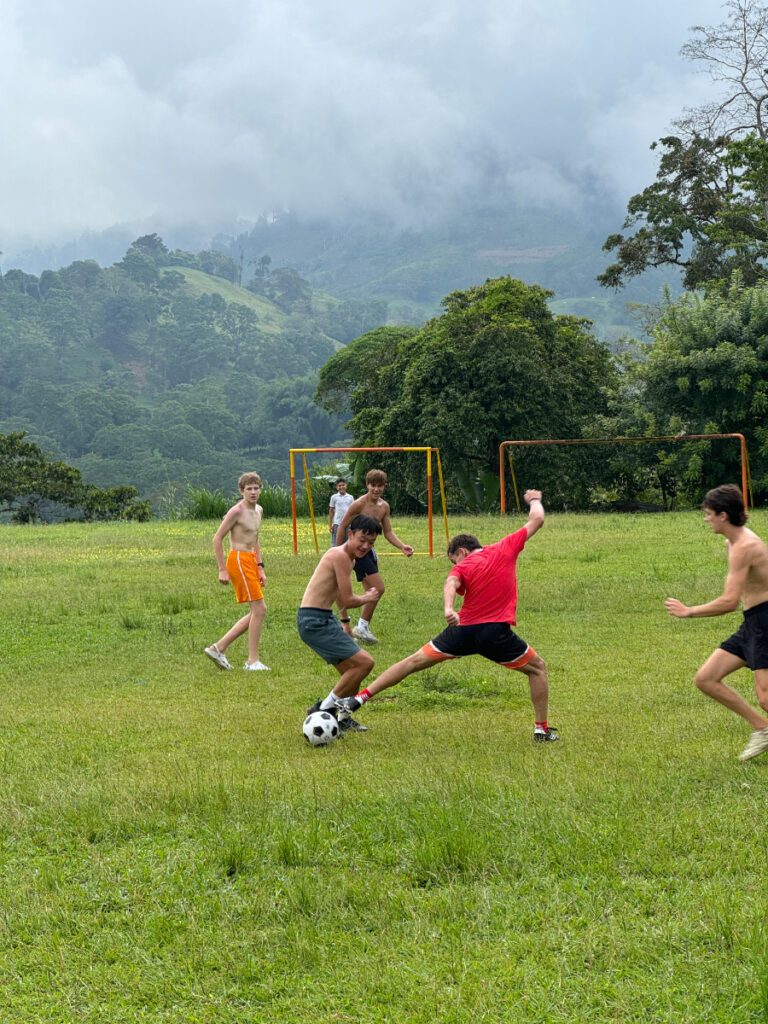
Captured by: Morgan Fisher 
1st year ARCC Leader
From our Costa Rica: Cloud Forest Community Initiative program
Best Culinary Moment
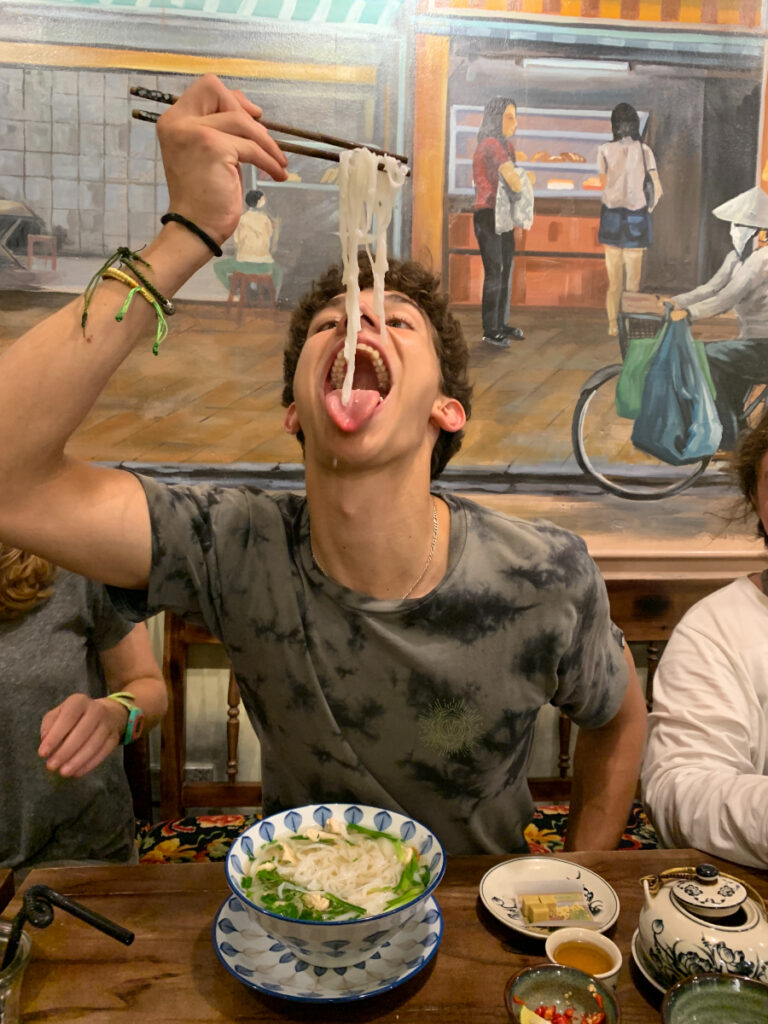
Captured by: Sabrina Lemar 
2nd year ARCC Leader
From our Southeast Asia: Beyond the Hidden Temples program
Best Learning Moment
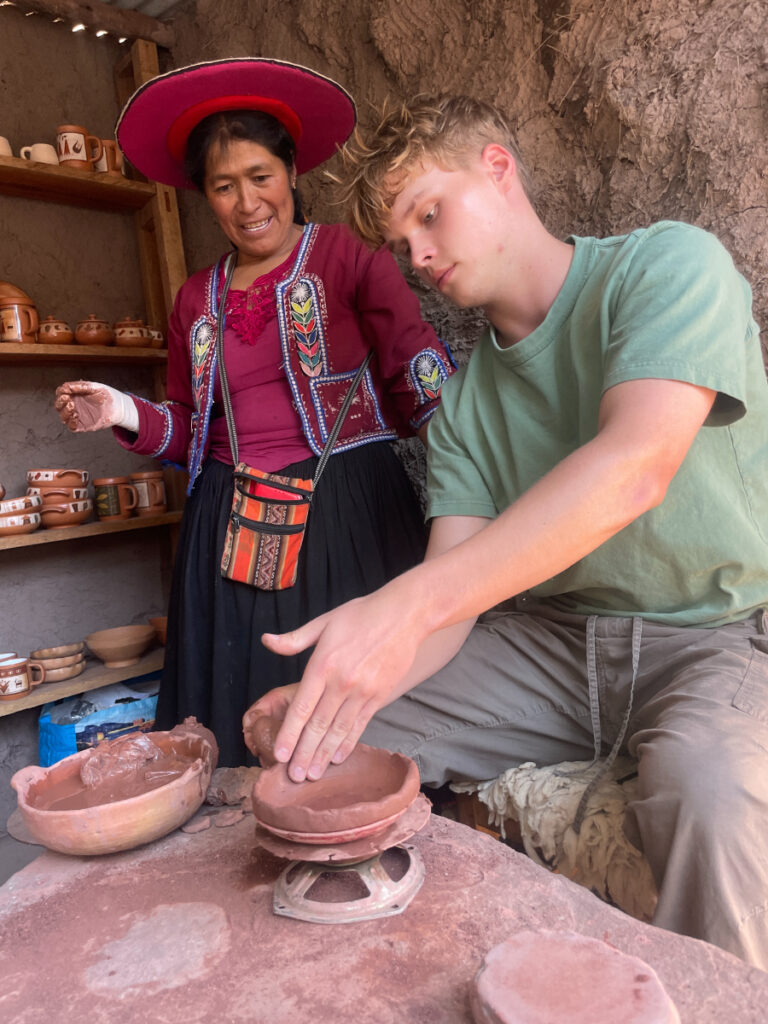
Captured by: Ash Whitaker 
2nd year ARCC Leader
From our Peru: Secrets of the Sacred Valley program
Best Travel Moment
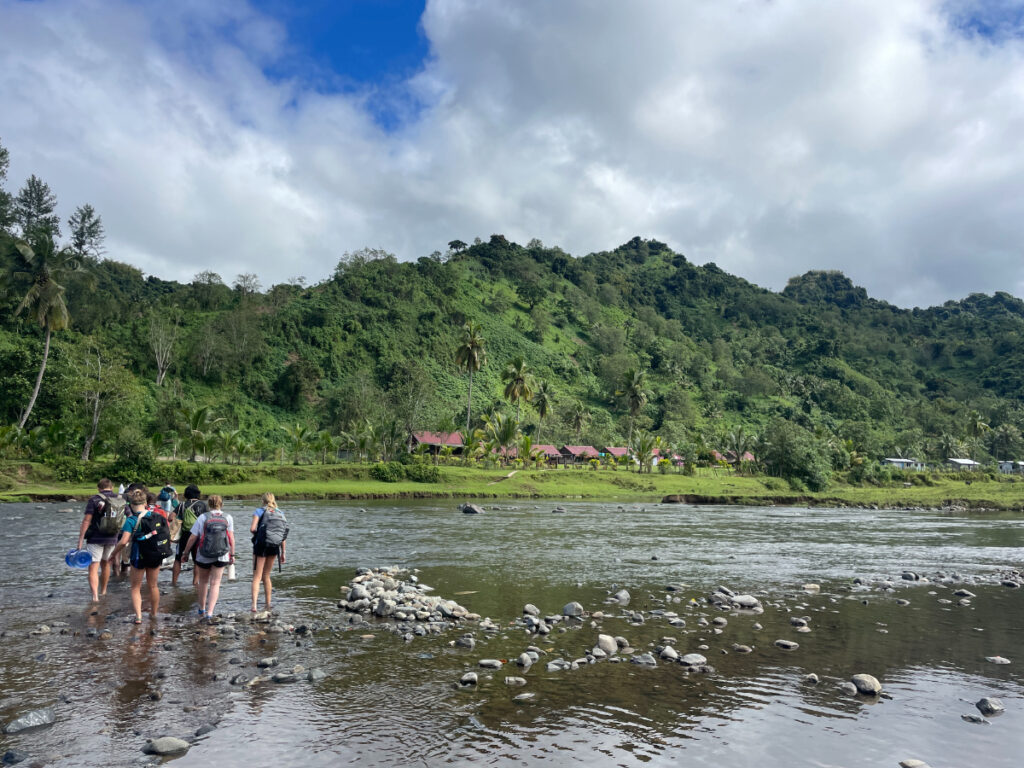
Captured by: Jasmin Gonzalez 
4th year ARCC Leader
From our Australia & Fiji: Island Village Initiative program
Shoutout to our awesome ARCC Trip Leaders for leading some epic summer 2025 programs. We cannot wait to see you all again next year!!
The post Leader Photo Contest: Summer 2024 appeared first on ARCC.
Annual Staff Training: Summer 2024 25 Jun 2024, 10:46 pm
What signals the start of summer here at ARCC Programs?
Our annual Staff Training of course!
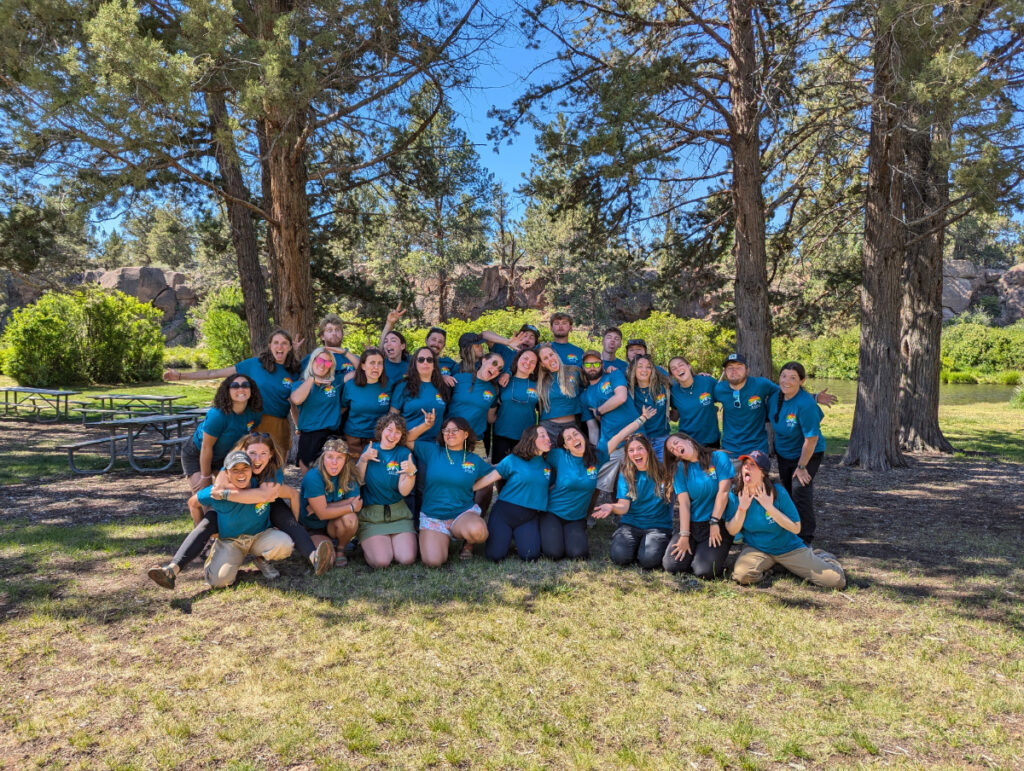
Every year we kick off our Staff Training with a Return Leader Fun Day hosted by our office in Bend, Oregon. This year’s activity did not disappoint—spending the day floating the Deschutes River! This is just one of the many ways we thank our leaders for coming back year after year.
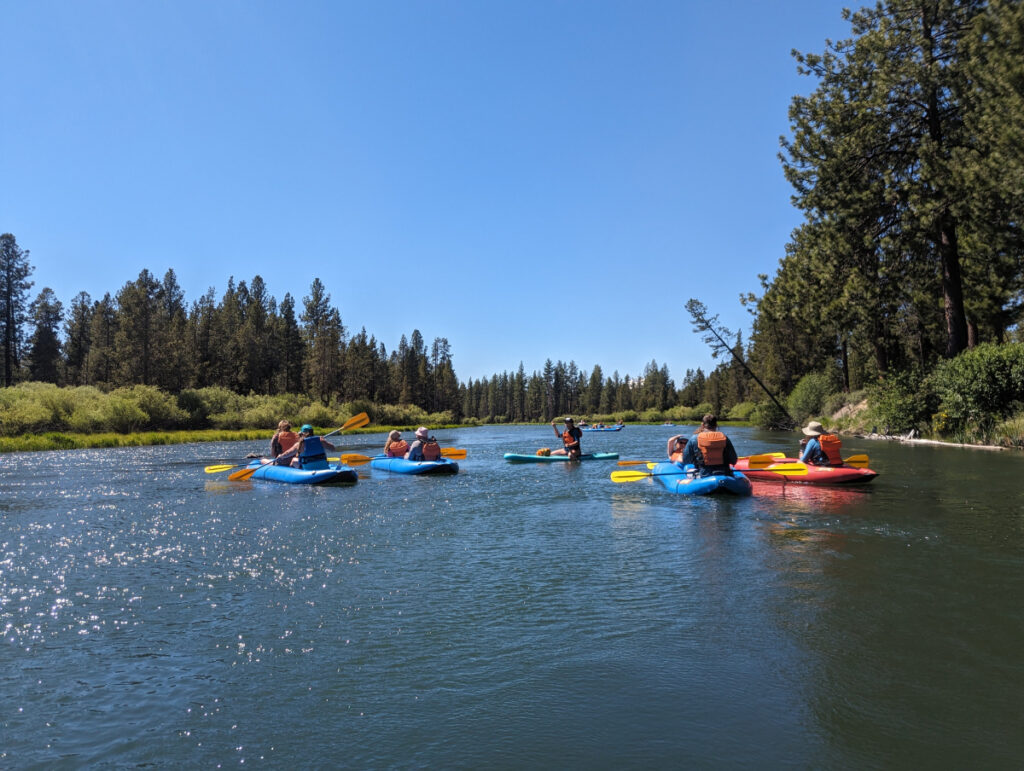
First time ARCC Leaders started to roll into Bend early June, where they were greeted by our full-time office staff and their fellow co-leaders—some of whom are in their 6th and 7th years leading for ARCC!
Every leader hired to work for us is Wilderness First Responder (WFR) certified, has previous experience working with students or teens, and has a background in outdoor education or adventure activities. But most importantly, they’re super passionate about what they do!
So what does ARCC’s Staff Training entail? Our office staff spends a week teaching ARCC traditions, new games leaders can play with their students, how to handle different types of situations that may arise, and overall how to run a successful program for all our students!
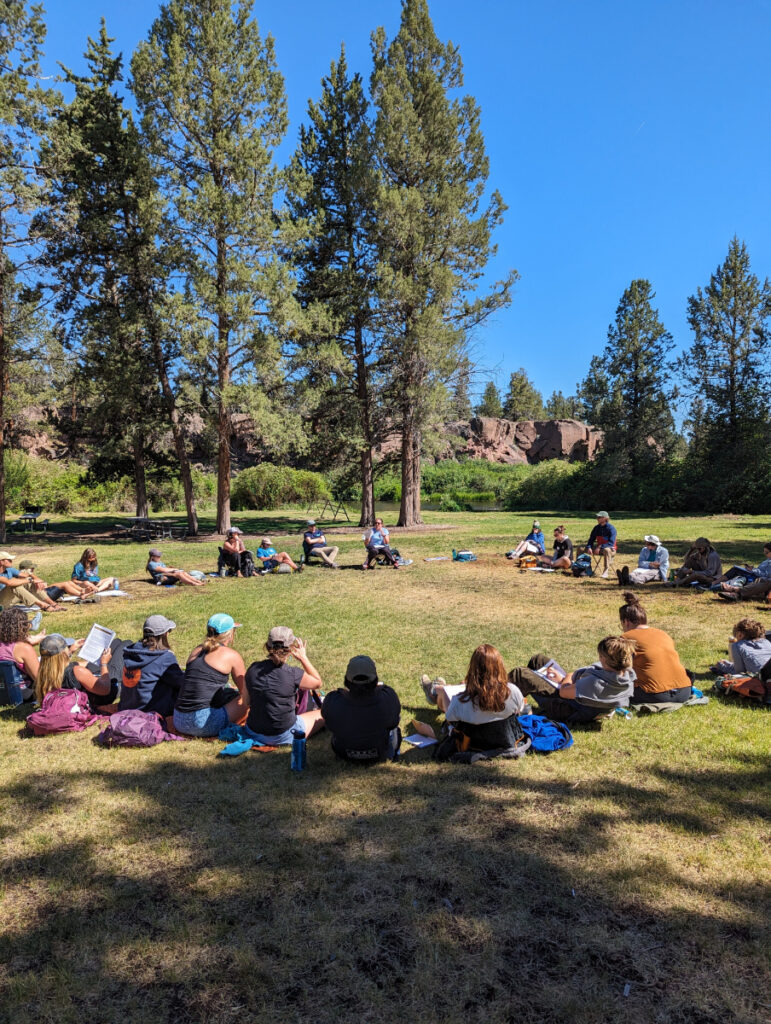
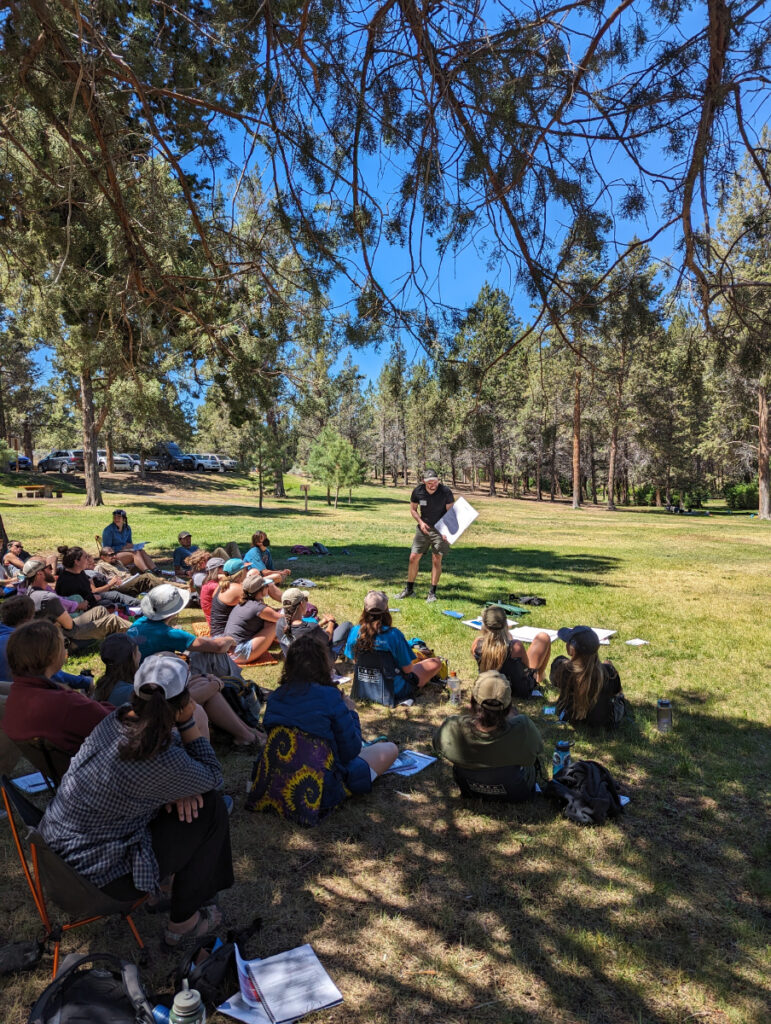
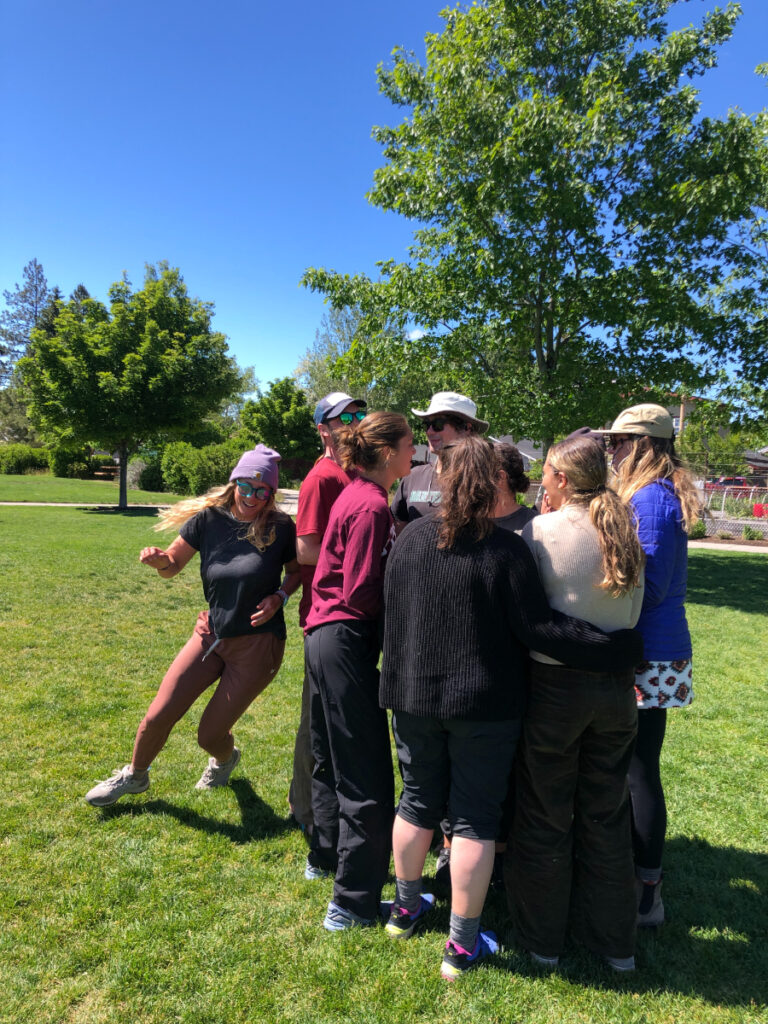
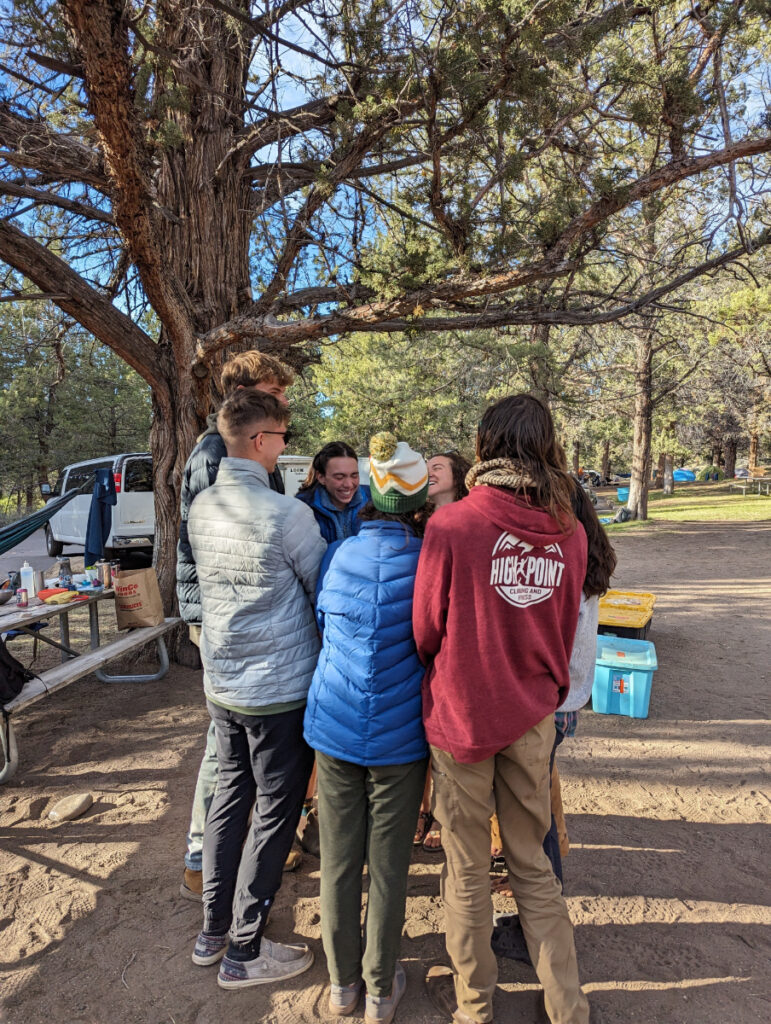
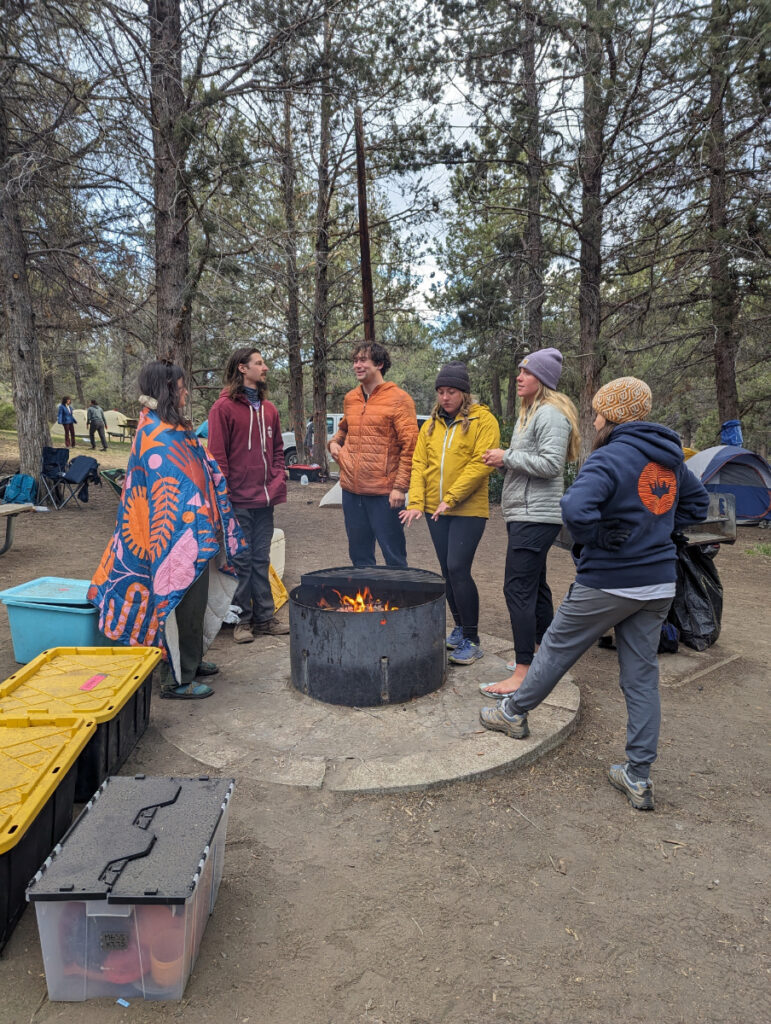
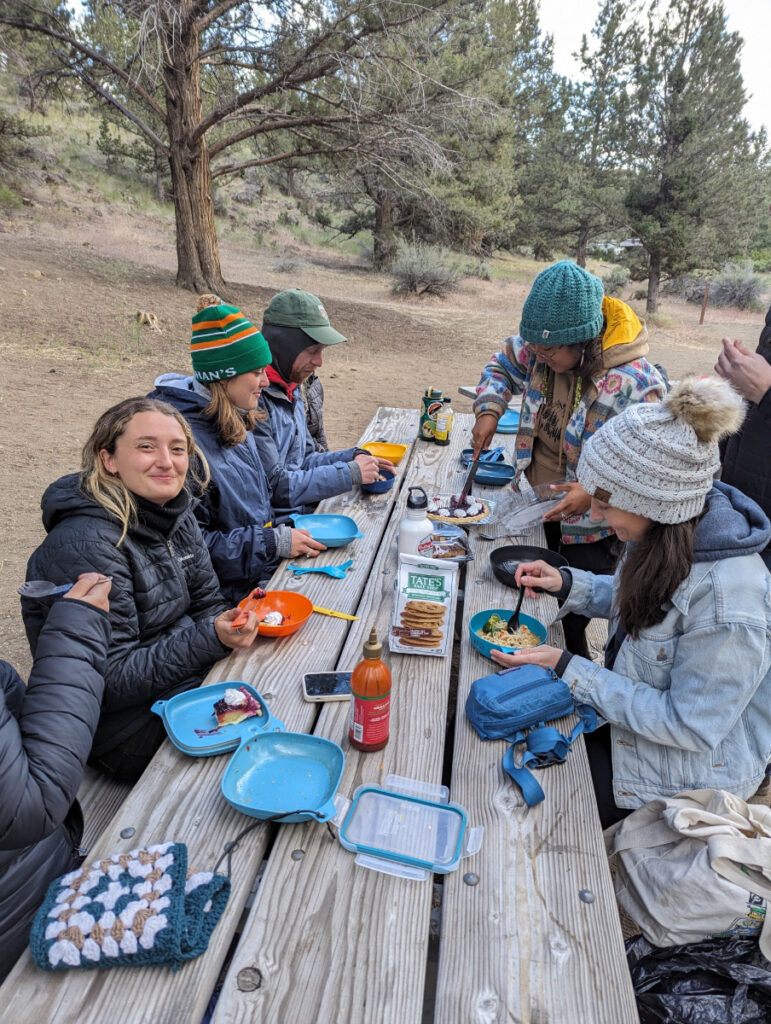
This week-long training is a time for leaders to come together, meet one another on a more personal level, and start to form a lasting connection with the ARCC office staff.
In honor of the 2024 Paris Olympics, we asked our leaders to form 4 different countries that would compete for the GOLD. We had 4 teams: the Red Team, Blue Team, Yellow Team, and Green Team. Each team had to create a fictional country complete with a flag, traditions, a national anthem, a mascot, and a slogan. And it was a HUGE hit all week!
All our leaders and office staff got super into the morning prompts and had a blast—every roll call was filled with giggles and smiles (even some singing)! We learned about one another through hot seats—a speed round of get-to-know-you questions—and spent quality time with each other over dinner and evening circles every night.
We concluded our training with an all staff BBQ and a friendly competition of 8 Olympic Games! Shoutout to the Green Team for taking home the Gold this year!
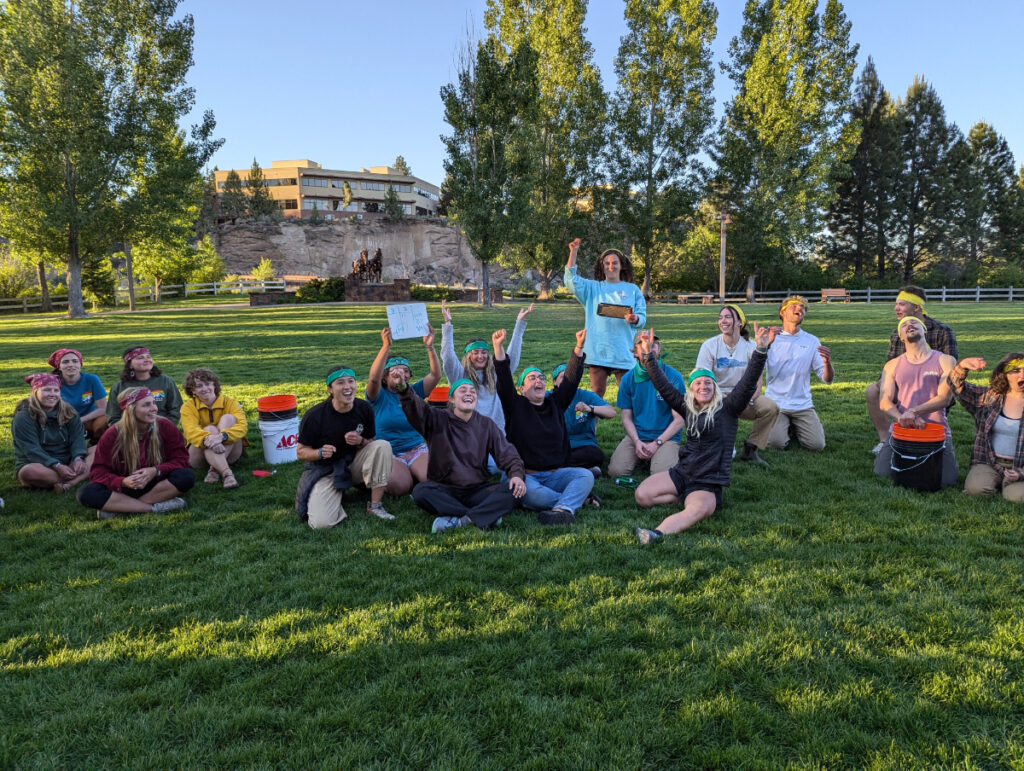
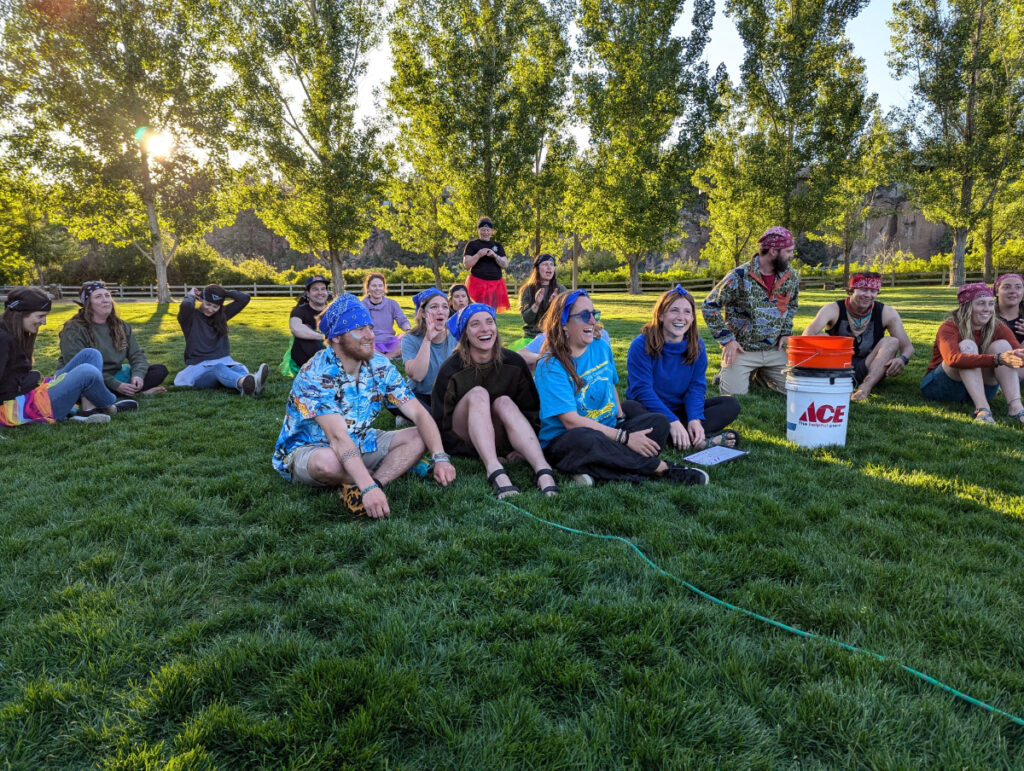
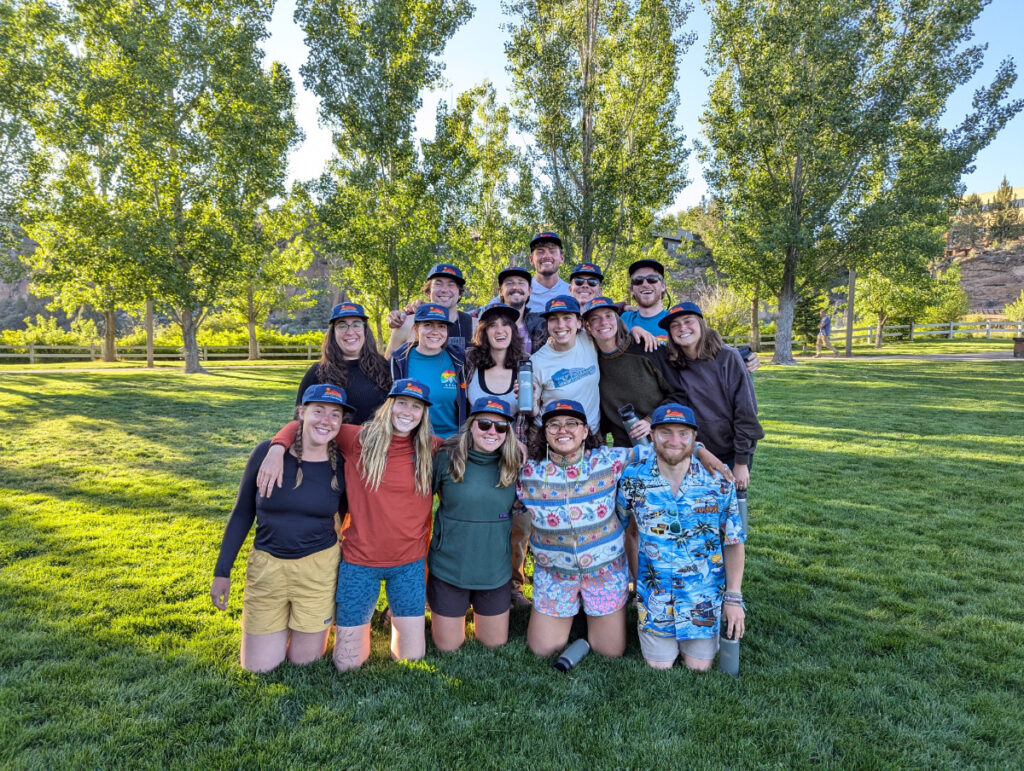
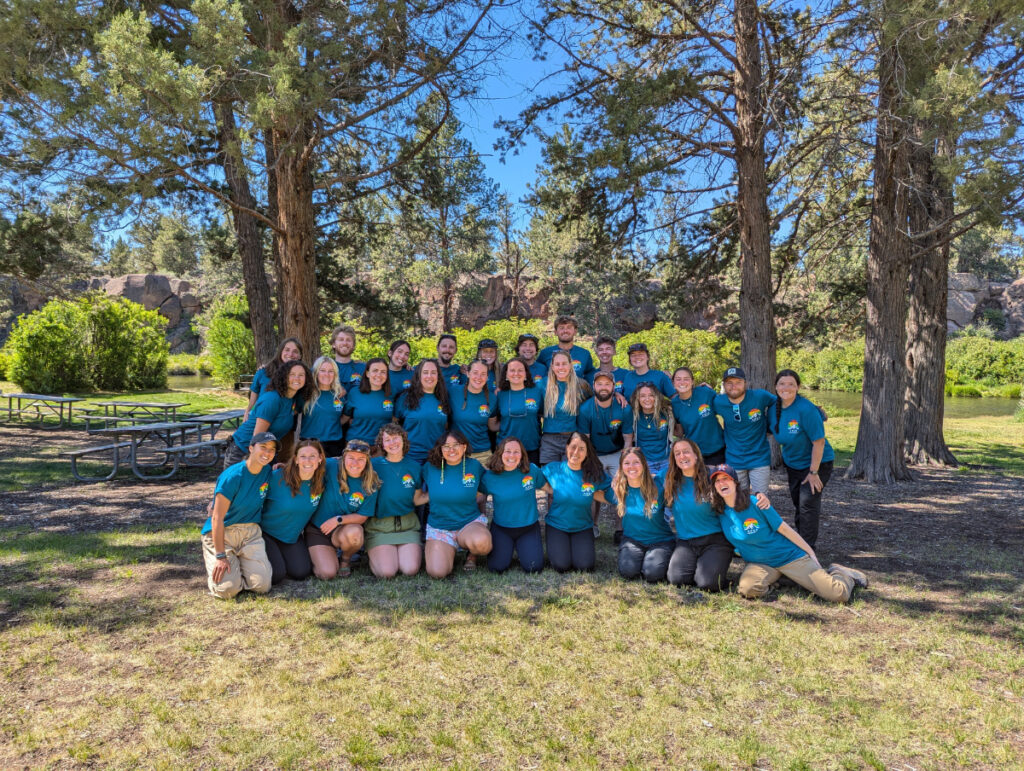
All this to say we are READY
to have an amazing 2024 summer season!
The post Annual Staff Training: Summer 2024 appeared first on ARCC.
ARCC Gap Wins 2023 “Best Support” Gap Year Award 15 Jan 2024, 10:52 pm
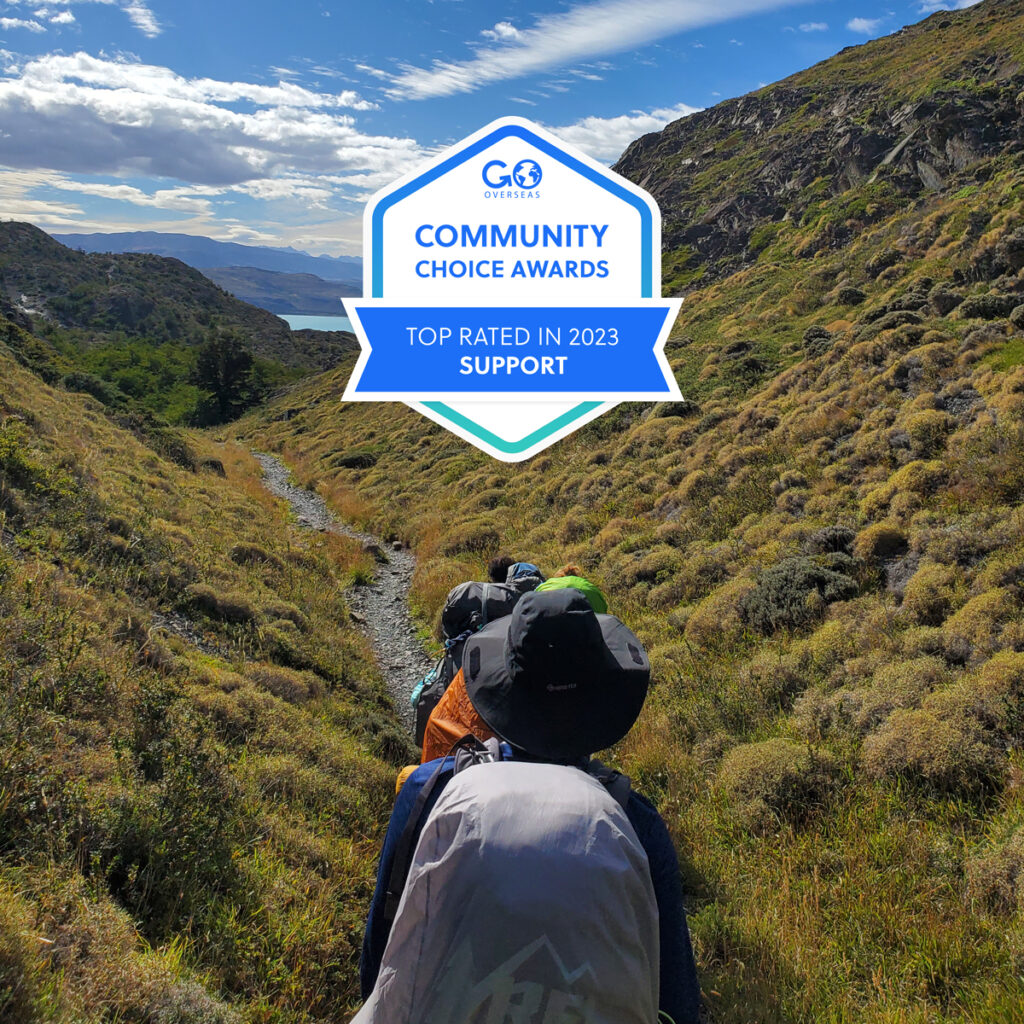
The results of the GoOverseas 2023 Community Choice Awards are in and ARCC Gap is excited to announce that we have been recognized as a “Top Gap Year Provider for Support” in 2023!
What an honor to receive this award, especially considering ARCC’s Gap Year programs are often the first time students are traveling outside of their home country for an extended period of time. We are humbled that families trust us to make their student’s gap semester an educational, fulfilling, culturally immersive, risk managed, and fun experience they will never forget.
We pride ourselves on supporting our students throughout every step of their ARCC Gap Semester. From open communication throughout your application, to coordination assistance during your travels, and unwavering encouragement even after your journey comes to a close, our staff is there for every student that entrusts us with their gap year experience.
We’ve always believed that supporting our students and families with the logistics of a gap semester is of the utmost importance and we are so pleased to see that our alumni families agree!
Here’s what alumni families have to say about the support they received while attending an ARCC Gap Semester.

“We were so pleased with ARCC. We feel that ARCC is a well oiled machine and we would recommend an ARCC program to anyone! ARCC does an awesome job of preparing families and the students, engaging in meaningful programs with partners, ensuring the safety of the students at all times and making sure the students have fun along the way. We loved the education aspect too.”
— Parent of Kylie G., ARCC Gap Alum, Los Altos, CA
“Anna’s experience with ARCC has been outstanding! 10 out of 10, from the application process to the last day of the ARCC semester. This was such a positive and enriching experience where she made great gains in her personal growth and self confidence. As her parents, we can’t thank you enough for providing Anna with this once-in-a-lifetime and unforgettable experience! Your exceptional communications to us throughout the semester definitely put us at ease.”
— Parent of Anna B., ARCC Gap Alum, Reading, MA
“We had a terrific experience with ARCC. The communication was stellar. We knew exactly what we needed to do at every moment in order to prepare for the trip. While the kids were abroad, the home office continuously kept us up to date. They also made us feel that we could call if there were any issues at all. The instructors on the trip were supportive yet still empowered the kids to find their own way. This trip was intended to help our son to grow his level of independence. The trip did exactly what we were hoping.”
— Parent of Connor D., ARCC Gap Alum, Apex, NC
The post ARCC Gap Wins 2023 “Best Support” Gap Year Award appeared first on ARCC.
The Power of Experiential Education 20 Feb 2023, 10:29 pm
“Experiential Education is a teaching philosophy that purposefully engages learners in direct experience and important self reflection to gain new skills, clarify values, develop character, increase knowledge, and expand an individual’s capacity and intrinsic motivation to be a Global Citizen.”
Imagine waking up at 4 A.M. and feeling the sun on your face as you look out to expansive views of the Pacific Ocean, the highest peak in east Bali, and thousands of acres of lush cashew farms. Envision sitting between two batu candi (lava stone etched into ornate temple structures) while admiring the accomplishment of your group and the beauty of the world around you. Experiences like this can be ordinary occurrences on a gap semester with ARCC in the Pacific Islands. Being taken from the comforts of your home upon signing up for such experiences will open your mind and heart to new ideas, perspectives, cultures, and people.
When deciding which ARCC program to attend, students often make selections based on activities such as “Orangutan Trekking” or “Installing Water Filtration Systems in Cambodia.” What many students don’t realize is that on any ARCC semester, they are signing up for a learning experience that is distinct from traditional schooling found in Western countries with a four-walled classroom academic setting. With my experience as a classroom teacher and ARCC Gap Instructor, thinking critically about our education systems and how students best learn is a passion of mine. Experiential education is a teaching philosophy that purposefully engages learners in direct experience and important self-reflection to gain new skills, clarify values, develop character, increase knowledge, and expand an individual’s capacity and intrinsic motivation to be a global citizen. Below I will highlight why “learning by doing” and having experiential education opportunities before embarking on higher education is one of the most important choices you can make for your future.
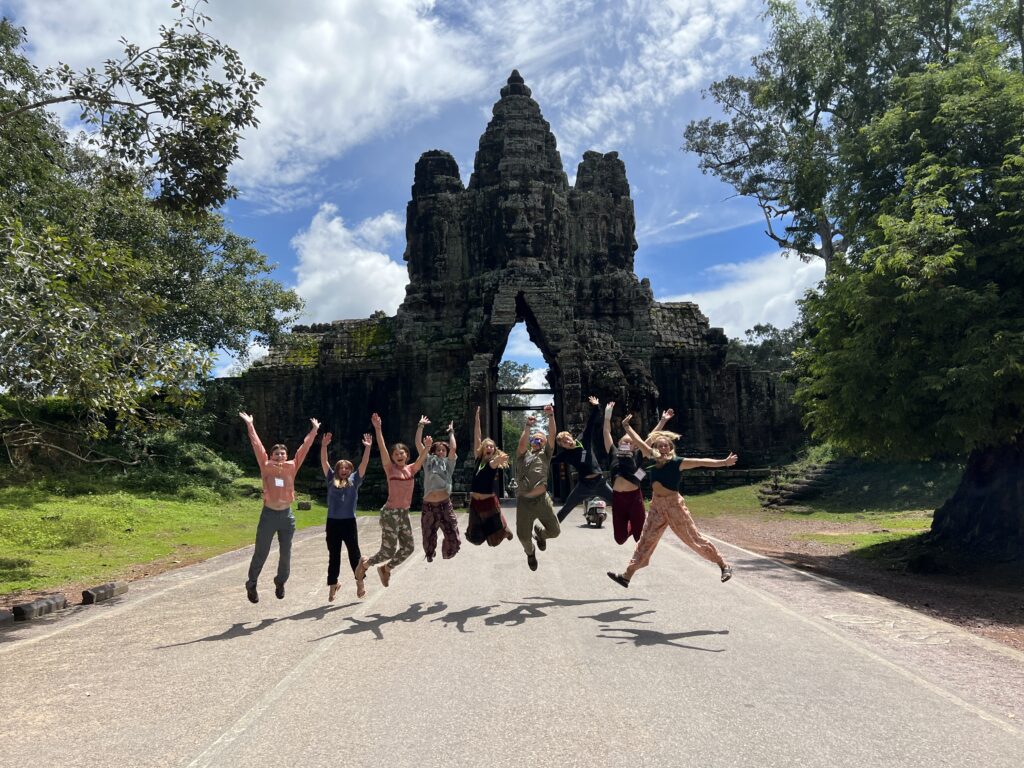
Project Based Learning
Graduating from high school is a huge milestone in a person’s life. As a young adult, you are at a very influential age to learn about yourself, how you affect the world, and what role you have to play in shaping the world in the future. Taking time to step away from the four walls of a classroom to participate in a gap year domestically or abroad fosters an intentional space for you to reflect on your character and values while gaining new skills.
Take, for example, a long-standing project that ARCC contributes to in Kenya: installing solar panels in homes in rural villages that have no electricity. Our students have the opportunity to examine their own living situation at home, counting the number of appliances and light bulbs used to measure the amount of electricity needed to run their home. They then learn how solar panels work, constructing their own set of panels to be installed while learning how to a variety of different tools, and collaborating to assemble the solar panel box to connect to the battery. This is just one day of the program, and the students are already gaining a lot. Students are using new tools with their hands, engaging in new tasks that may feel impossible yet become reality through collaboration, and learning about their own energy consumption compared to the communities in the Great Rift Valley of Kenya where they are working. Math, electrical engineering, problem-solving skills, critical thinking, and working with others are all used to gain these new skills. A sense of great personal accomplishment is fulfilled through the completion of this project.
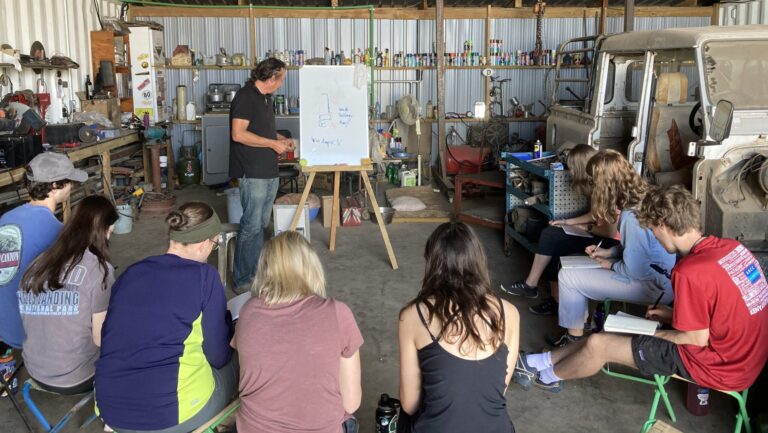
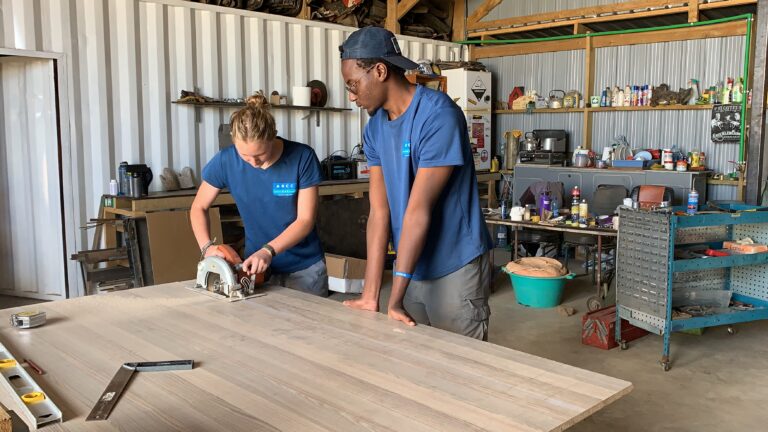
Skills Through Experience
Gaining hands-on experience and new skills through such projects are what we call “hard skills.” Students come away from a project being able to say, “I can now work with a circular saw to cut and shape a solar panel for a small home.” Another aspect of working on projects like this is analyzing our mindset and what we value as individuals and as a group. This is what we call “soft skills.” Experiential education makes space for developing both hard and soft skills through engagement and reflection. Recognizing how far you can push yourself and realizing you’re capable of more than you originally thought is a shared experience many students have on their programs with ARCC.
In Kenya, our group recognized the power of collaboration and lifted each other up through every new experience, seeing the value in how each individual could uniquely participate. A student with a detail-oriented “tinkerer” mindset was happy to help install the wiring, while a student who loved physical challenge and balance climbed a ladder to help drill the lightbulb casing to the ceiling. Everyone stepped into new roles that they had never held before, requiring grace and patience as they learned together. Experiential education opportunities like this encourage students to take time to reflect on who they are, how they motivate themselves, how they contribute to a group, and in what ways they want to grow. Practicing this type of reflection is an incredibly valuable skill, without reflection, there are limited opportunities for growth.
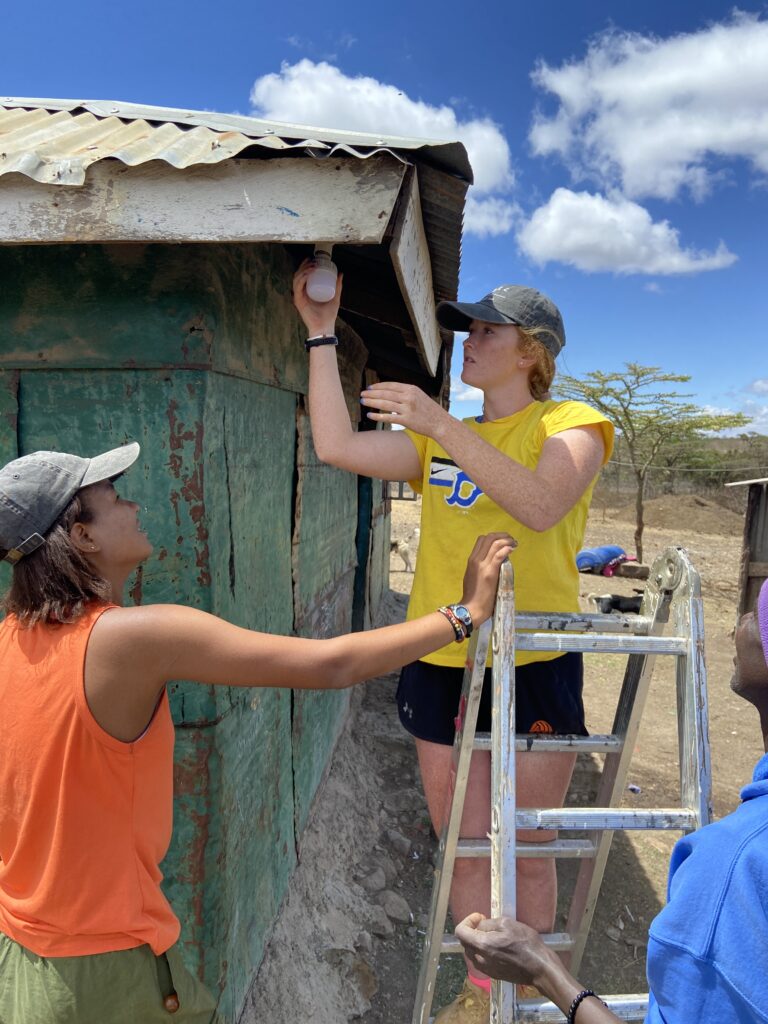
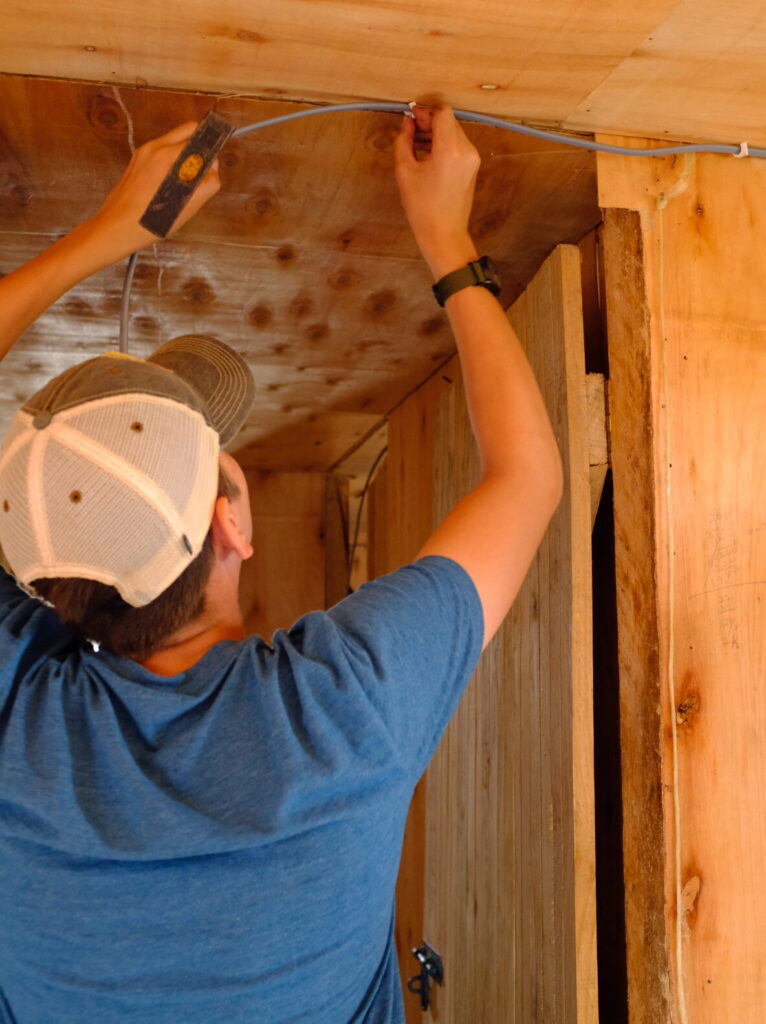
The Power of Human Connection
If you are lucky, many schooling opportunities today have some component of experiential education woven into the curriculum. However, these opportunities are often limited to a week-long field trip or getting outside with your class a few times a year. According to Forbes, many students struggle when they leave college in a theory-based environment and have a hard time applying it to real-world expectations. This takes practice like anything in life. Allowing space between high school and your higher education pursuits provides an opportunity to learn hands-on skills and interacting with communities around the world gives you a clearer picture of how you are connected to the greater global community.
Another valuable skill that comes from a gap semester is the power of human connection. ARCC groups spend 70 days together, day in and day out, learning and growing through every experience. We sleep in close quarters, have to work through personal conflict, find the value in mediation and conflict resolution, discuss privilege, and open up through vulnerable conversation. Learning how to lean in and count on others, while also learning how to set boundaries and clearly communicate needs is an invaluable skill that can be applied infinitely in your future. Past gap semester students have often shared with me how the skill of conflict mediation helped them work through issues with their roommates, class projects, and their future work environments. The knowledge that comes from practicing these skills and having a greater understanding of how to best work with and support people will help you in school, with family relationships, and your future partnerships.
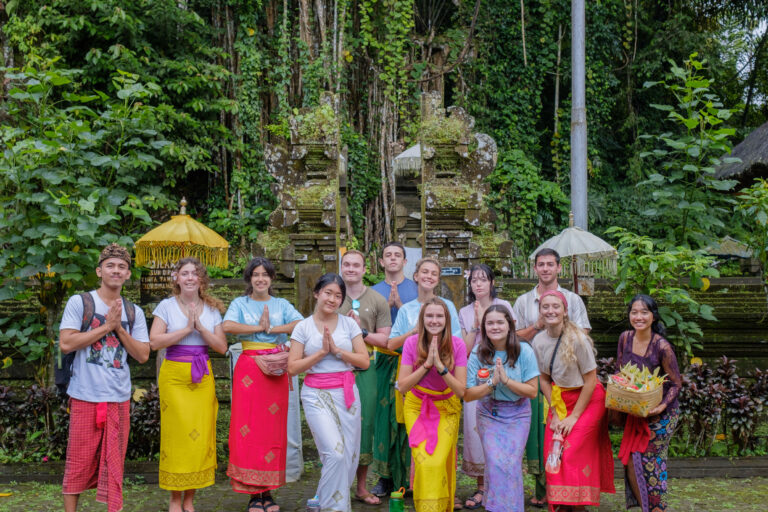
Reset and Refocus on Learning
Having a sound combination of self-reflection, curiosity, applying your knowledge to real-world context, and engaging with the power of collaboration from your gap semester will set you apart from others. Gap semester programs open your eyes to new ways of living and make space to reflect on your own life, privilege, and purpose. You will learn more about yourself from what you may want to study and pursue professionally in the future to how you engage with the world and how you can best make a difference. While walking up a steep volcano in east Bali, our group really leaned in and needed to support each other to complete this task. Reaching a summit alone is possible, but reaching a summit alongside your traveling family teaches you resilience, the power of group support, and how you are truly capable of achieving more than you think is possible.
There are endless gap semester examples that I can share, but if you can, I believe you should pursue them yourself before moving on to higher education. The importance of weaving experiential education into your learning timeline before attending higher learning is my hope for every young person. You will be glad you took this time in your life to prepare yourself more holistically for your future, you won’t regret it!
ARCC Programs has offered programs for students for over 40 years. With international semester programs on five continents, there is something for everyone. Find a gap semester program on our website or request a catalog today.
The post The Power of Experiential Education appeared first on ARCC.
5 Trends Gen Z Travelers Won’t Budge On 1 Feb 2023, 5:55 pm
Generation Z (Gen Z) —the name given to those born between 1997 and 2012— is itching to travel after two years of mostly remaining in place.
In fact, Gen Z plans to spend more money on travel plans than any other generation in 2022, with 72% planning on spending the same, or more, than they did before Covid-19.
With the oldest of Gen Z travelers being 25, this young group of travelers will begin traveling outside of family vacations, hoping to see more of the world. But, travel may not be up to their parents’ standards, because Gen Z sticks to their values when it comes to travel plans.
In this post, you’ll learn about 5 Gen Z travel trends including, sustainability, giving back, experiential travel, enrichment activities, and unique accommodations.
Trend 1. Sustainability
It’s no surprise that Gen Z cares about the environment, including the impact travel has on the Earth. For their entire lives, this population has learned about climate change, sustainable practices, and eco-friendliness.
Take a look at these Gen Z travel statistics from YouGov:
- 34% search for sustainable travel offers
- 38% would stay in eco-friendly or green accommodations
- 21% prioritize booking a flight with lower CO2 emissions
The kids are alright! Gen Z will be putting their money to good use in 2022, including intertwining sustainable practices into travel, more than their older counterparts. Not only does Gen Z care about the environment, they also care about their impact once they arrive at their destination.
Trend 2. Giving Back
For Gen Z travelers the impacts of Covid-19 are unforgettable, and this is swaying their opinions of what responsible travel means.
Gen Z is less likely to book “all inclusive” vacations, supporting the local economy is important to them while traveling. According to YouGov’s Travel and Tourism Report 2022, 37% of Gen Z prioritize spending money with local businesses or on local produce. Additionally, 45% seek authentic experiences that are representative of the local culture.
They are more likely to be interested in traveling with a purpose, such as volunteering and eco-tourism, moved by a desire to do something meaningful and give back to the community.
Gen Z doesn’t only have spending ties to the communities they visit, they also want to be immersed in the culture.
Trend 3. Experiential Travel
The types of vacations Gen Z wants are ones that allow them to connect deeply to a place through its local people, environment, and culture, not just through the lens of an outsider. This type of travel is called experiential travel.
Gen Z has “a strong interest in localism and the authentic cultural experience that individual countries can offer,” according to YouGov’s report. The top vacations Gen Z would choose are volunteering and eco-tourism, performing/visual arts festivals, and adventure based.
Learning goes hand-and-hand with experiential travel, as travelers discover the different ways people around the world live differently. Naturally, Gen Z travelers prioritize enrichment opportunities.
Trend 4. Desire Enrichment
This Gen Z trend may not be surprising, since studying abroad is a popular trip term for high schoolers and college students. The usual draw of studying abroad is the ability to simultaneously travel to a new amazing place while learning new things.
As Gen Zers plan their next big trip, they have a strong desire for personal development and enrichment. The responses of Gen Z travelers illustrates their learning needs in YouGov’s report:
- 30% wish to broaden their horizons
- 22% seek traveling for educational purposes
- 18% want to learn or develop new skills or practice a hobby
- 22% hope to learn a new language or improve on one their currently learning
The separation of learning and travel for this generation is slim. Better yet, for these determined travelers there’s no stopping them from experiencing new places, even if that means taking advantage of different accommodations.
Trend 5. Open to Unique Accommodations
Five-star hotels aren’t on Gen Z’s travel must-haves list, because of their heightened awareness of the cost of accommodations.
Now that many of them are traveling without the financial help of parents, this strongly influences consideration for more unique places to stay. Some of the accommodations Gen Zers wouldn’t mind lying their heads down at include:
- Hostels
- Campsites
- Rented apartments/houses
- Family and friends’ homes
- Rented room in other people’s home (homestay)
Not only does this make sense for budget-friendly alternatives, but it makes sense to fulfill the unique experiences Gen Z’s hope to get from travel. Staying at a place other than a hotel is going to open more doors for this generation to participate in the local culture and community.
FIND THE PERFECT ARCC PROGRAM FOR YOUR GEN Z TRAVELER
Gen Z is a population that isn’t messing around when it comes to sticking to their values.
When you check out our ARCC programs, you’ll quickly see our trips check all the boxes for Gen Z in terms of providing programs that fully align with their values. We offer unique and unforgettable experiences, rich educational programming, and community-driven projects.
ARCC Programs, which consist of both international and domestic travel options, have been offered to students for over 40 years. Find a Gap semester program or a summer program today on our website, or contact us for more information.
The post 5 Trends Gen Z Travelers Won’t Budge On appeared first on ARCC.
How Does Taking a Gap Year Affect My Financial Aid Status? 12 Aug 2022, 7:41 pm
Deciding to take a gap year is an exciting and potentially daunting choice. You’ve chosen a different path than most of your peers and while you may not need to pick classes or decorate a dorm room yet, you are probably considering how and where you want to spend your gap year. Your parents may be asking about how this decision will affect your college acceptance, your federal financial aid status, or your scholarships.
The answer will vary from school to school, and we encourage you to contact your specific college or university for clarification, but here are a few commonly asked questions and some helpful answers:
How does taking a gap year affect my college acceptance?
The majority of colleges and universities in the United States have a deferral policy for students looking to delay the start of their first year on campus. And while each school’s policy varies, it is generally a straightforward process done through the Admissions Office. As an example, the University of Oregon’s Admissions Office offers step-by-step instructions to admitted students on how to request a gap year deferral, preserve their academic status, and not miss any future deadlines. When an admitted student chooses to defer for a year, they will still be considered a first-year student upon their return. Earning college credit during your gap year would change your status to ‘transfer student’ and is discouraged by many colleges and universities. ARCC Gap offers the option to earn college credit through The University of Montana on all semester programs, and we encourage each student to review their school’s deferral policy before registering. Wesleyan University’s deferment policy, for example, specifically states that an admitted and deferred student is not permitted to apply to or enroll in any other educational institution.
How does taking a gap year affect my FAFSA status?
FAFSA, or The Free Application for Federal Student Aid, is a form that the federal government, colleges, and universities use to award grants, scholarships, loans, and work-study opportunities to students and their families. A student can apply on their own, or with their parent or guardian, and financial aid options are calculated based on income, investments, and family situations. Some universities require FAFSA paperwork as a part of their application as it factors into the scholarships they offer in-house. The federal government will also require you to re-apply for financial aid if you defer or decide to change your college timeline.
One thing to note regarding your FAFSA status and your gap year plan is whether you plan to make money. If you choose to take a job or paid internship during your gap year you will need to claim that income when you apply/reapply for FAFSA and it may change your awards.
How does taking a gap year affect my scholarships?
Scholarships offered by the college or university itself may or may not be dependent on your FAFSA status and it is best to speak with someone in the Admissions Office to get confirmation. Colorado College’s Gap Experience page explains that their need-based scholarships require reapplication after the student’s gap year while merit-based awards are nearly always automatically re-instated upon enrollment. Students accepted into Duke University’s Gap Year Program can receive between $5,000 and $15,000 towards existing or independent gap programs (with a few reasonable conditions). These gap-specific awards do not interfere with the student’s regular financial aid package.
As support for gap years grows within the United States, colleges and universities are making it easier for students to defer and stay on track to return the following year. If you are applying to college and considering a gap year, one of your first steps should be looking at each school’s deferral policy and if they offer any extra support or assistance. The Gap Year Association also provides detailed information about accredited Gap programs, applying for deferrals, and finding financial assistance.
ARCC Gap Directors (415-332-5075 ext 2) are available to answer your questions and support you as your Gap plans develop. Our Financial Assistance and College Credit pages are an additional resource in this process.
The post How Does Taking a Gap Year Affect My Financial Aid Status? appeared first on ARCC.
How to Talk to Your Parents About A Gap Year 8 May 2022, 7:23 pm
You’ve been giving this a lot of thought. You’re starting your senior (or junior) year and you just aren’t sure college is the next step for you. You want to travel, work, explore, and take the time to find yourself. But everyone else is going to college and your family has supported you through all your schooling and extracurriculars with the expectation that college is the next step. You want to make them proud but making a commitment to at least four more years of school does not seem right at this time. You’ve already started exploring other options and think that taking a gap year may be right for you.
First off, congratulations! You are showing self-awareness and maturity by trusting your gut and recognizing that the conventional path may not be best for you. The next step is talking to your parents. You might be a bit nervous that they won’t understand or won’t support this nontraditional idea. It will be important for you to come to this conversation with resources and a clear explanation of why you want to take a gap year.
Here are some helpful points to get you ready for that conversation:
Know Your Reasons
Perhaps most important in this process is why you want to take a gap year in the first place. More and more U.S. high school students are choosing to delay college or a career in order to spend a year pursuing other interests, not because they are uninterested in learning. Some students don’t feel ready to commit to four more years of schooling or don’t yet know what they want to study. In our competitive academic culture, many high school students are burnt out by the time they reach graduation and are looking for an opportunity to learn and grow in a hands-on environment. Other students may be drawn to gap year programs by a gut feeling, knowing that they prefer learning experientially. Any of these reasons are valid and deserve to be recognized and supported. The key is being able to concisely verbalize your thought process to help your loved ones understand where you are coming from.
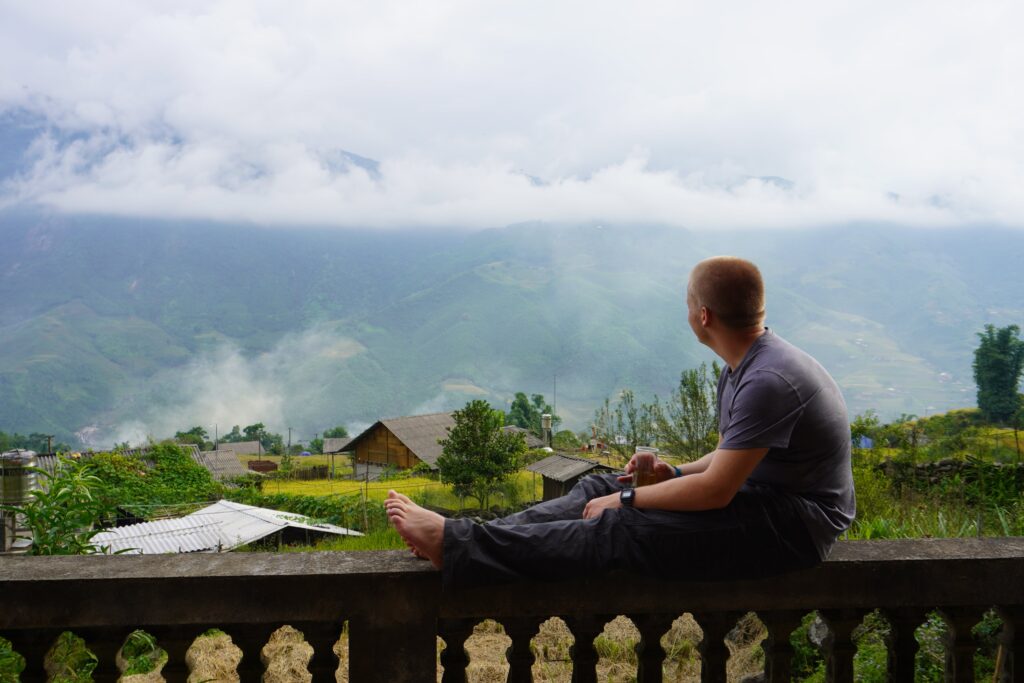
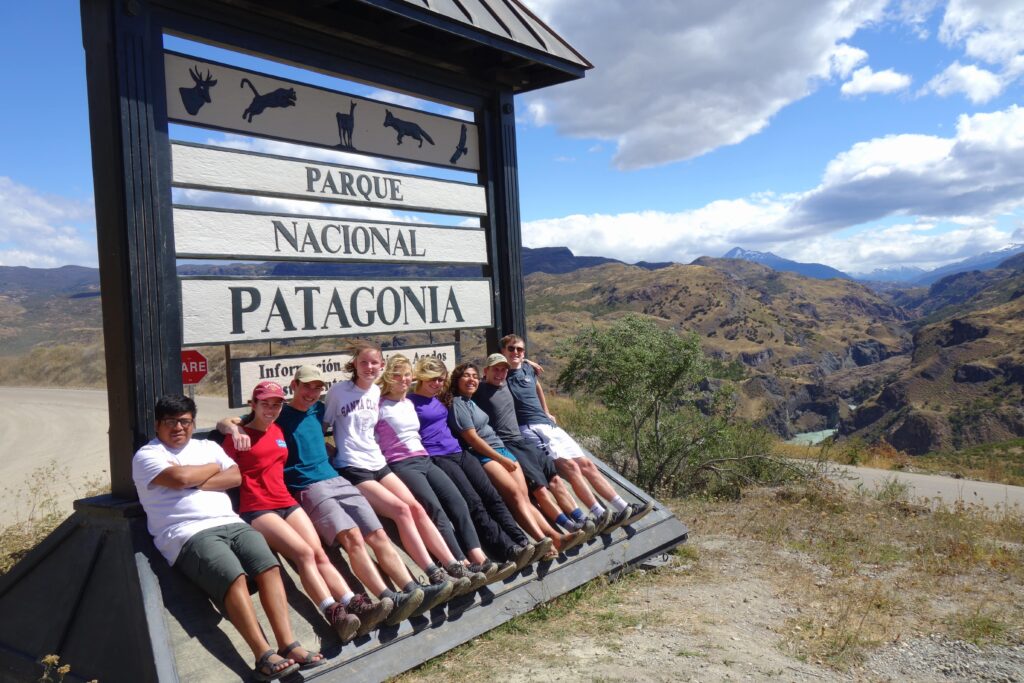
Do Your Research
Gap years are common throughout Europe and Australia but have only become popular in the United States in the last decade. You and your family may not know anyone who has taken a gap year and it may be an entirely new concept to your parents. By sitting down and doing some intentional research, you will enter the conversation with knowledge, statistics, and stories that will help your parents understand what you are proposing.
A simple Google search of “gap year programs” will give you 10+ pages of links to programs, forums, blogs, and news articles. This can be overwhelming. To get started, check out The Gap Year Association, GoOverseas, or GoAbroad, these websites provide overviews of many program providers and offer advice on how to choose the best program for you. Making an appointment at your school’s College and Career Center could also be a good first step in your research process. If you’re applying to college at the same time, or have already been accepted, check-in with the college’s Admissions Office to make sure you are following their deferral protocol as it is different for each school. Some schools have started offering financial aid for gap years or have a gap program of their own, which you can learn more about through your college.
Provide Resources
You’ve done your research, now share it with your parents. Let them know that you have a proposal for them and block off plenty of uninterrupted time. They will want to see which programs you are looking at, where you will visit, what you’ll be doing, who you’ll be traveling with, and of course, how much it will cost. By getting this information together beforehand, you will demonstrate both your maturity and your level of commitment to your gap year plan. This is also the time to present them with statistics about the benefits of a gap year and how many top universities support and encourage it. The price of an organized program is often the biggest hurdle for applicants so most programs provide a financial aid application process and additional links to scholarship opportunities.
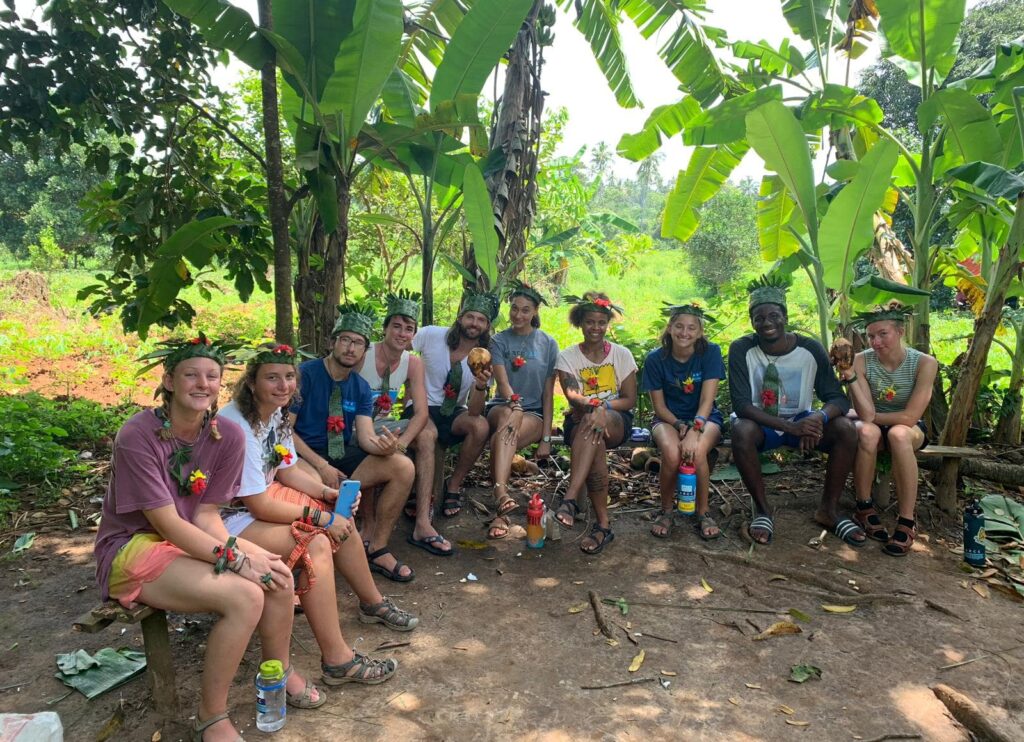
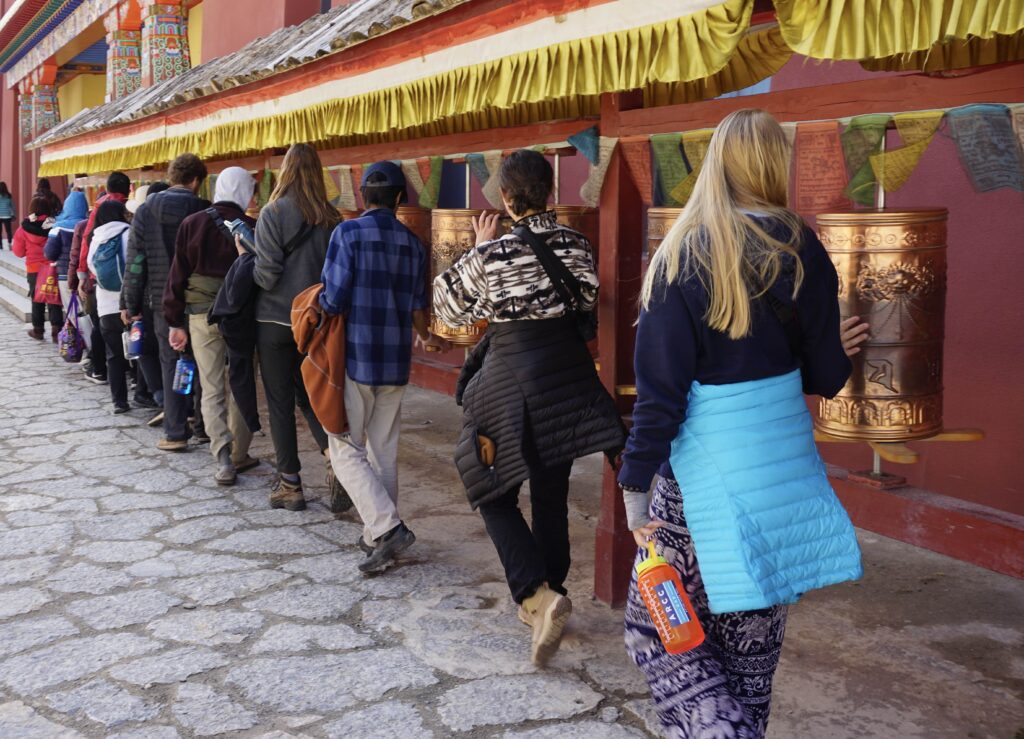
Consider Their Side
You can come prepared with all the research and reasons and your parents will still have questions. Common worries are that you won’t ever go to college, that you will be academically behind, that you simply want to party and travel aimlessly, or that this will be too financially taxing. These are legitimate concerns and it’s best to respond with patience, understanding, and an open mind. They might not jump on board right away. You might not be able to answer all of their questions at that moment and they may want to do their own research as a supplement to yours. Allow them to share their thoughts uninterrupted and then give them time and space to get their head around what might be a brand new idea. Demonstrating your maturity can only help your cause!
Keep Them Involved
Make this a family process! Whether or not your parents are able to support this plan financially, include them in the discovery and application process. Create a timeline of what needs to be done and schedule in time to sit down together to keep everyone on the same page. Some steps will require parental involvement and it’s best not to spring a deadline or an interview on them at the last minute.
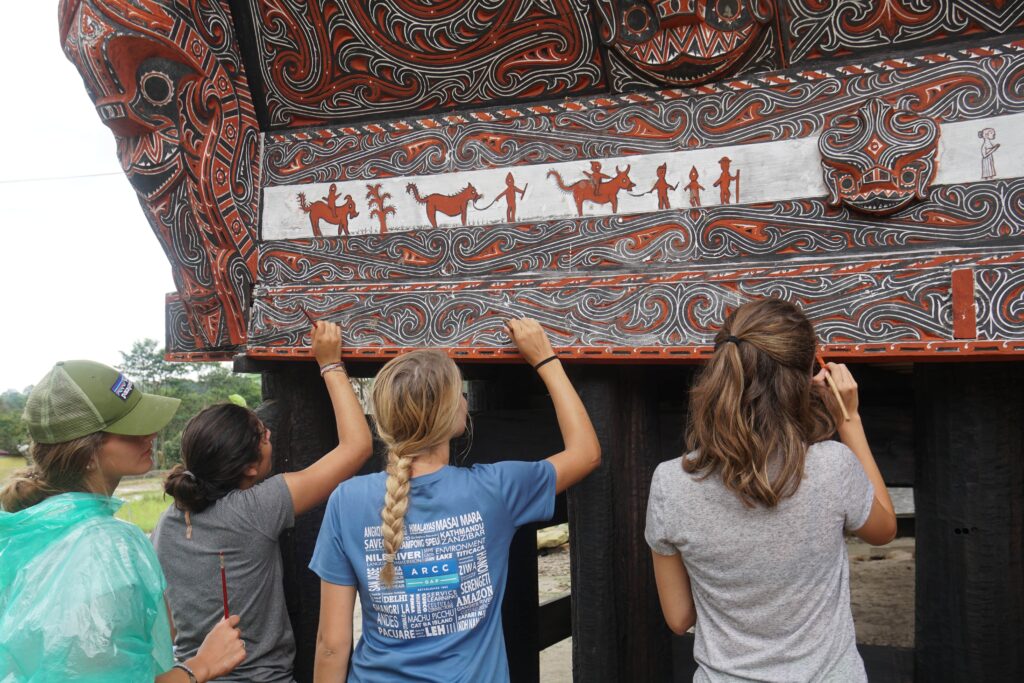
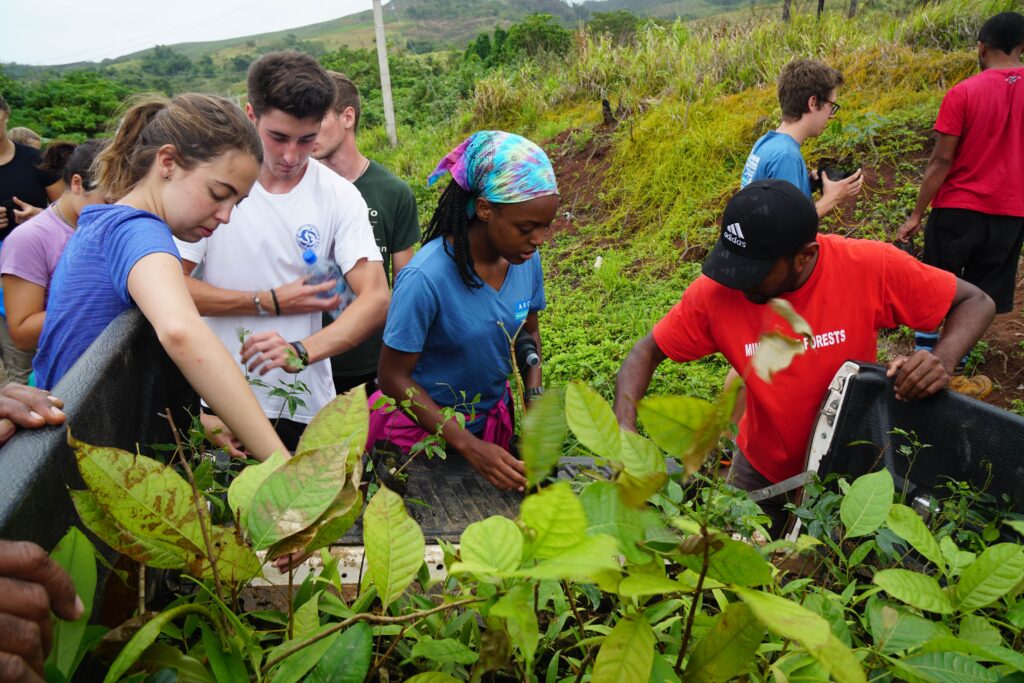
Ask Questions
Your family may need some time to get on board with this new plan of yours, especially if previous conversations had been focused on college after graduation. But if you start early, and come in having done your research, you are setting yourself up for a more productive conversation. If you have a particular program in mind, look for options to speak with someone on staff so you and your family can ask questions. Most companies have alumni students and family that you can reach out to to get a first-person perspective about the experience. Having a conversation with a program director, recruitment coordinator, or alumni is a great way to learn more and get your questions answered!
ARCC Gap Directors (415-332-5075 ext 200) are available to answer your questions and support you as your Gap plans develop. Our Financial Assistance and College Credit pages are an additional resource in this process.
The post How to Talk to Your Parents About A Gap Year appeared first on ARCC.